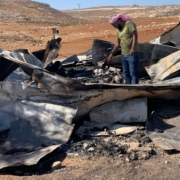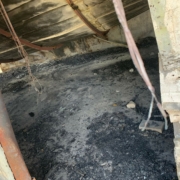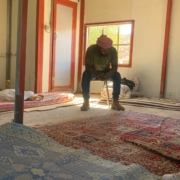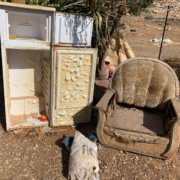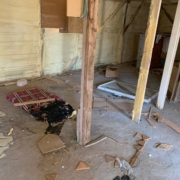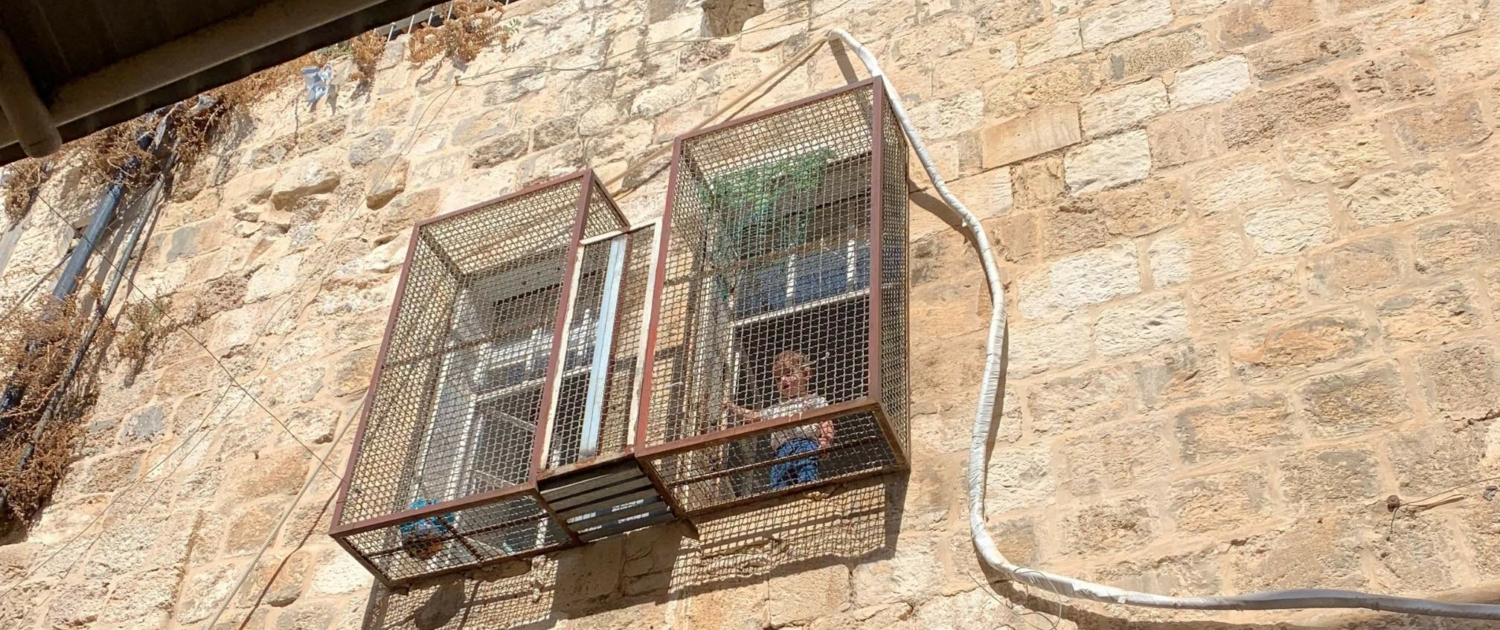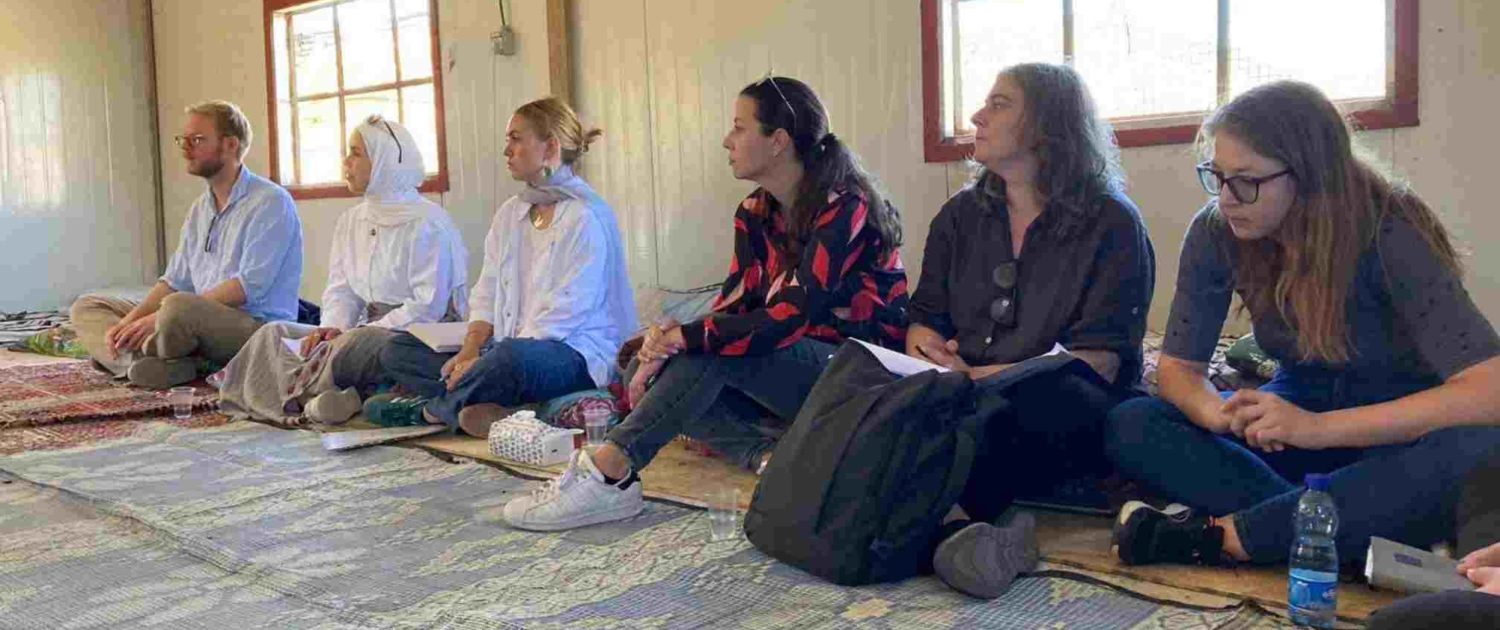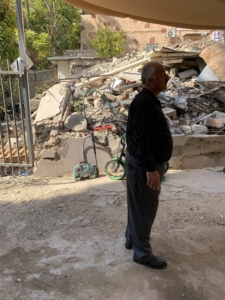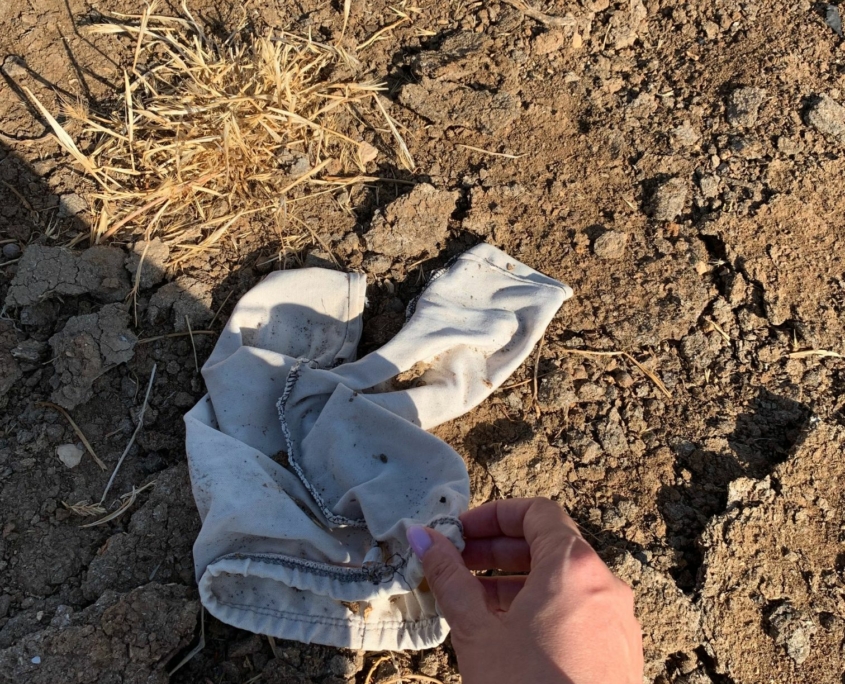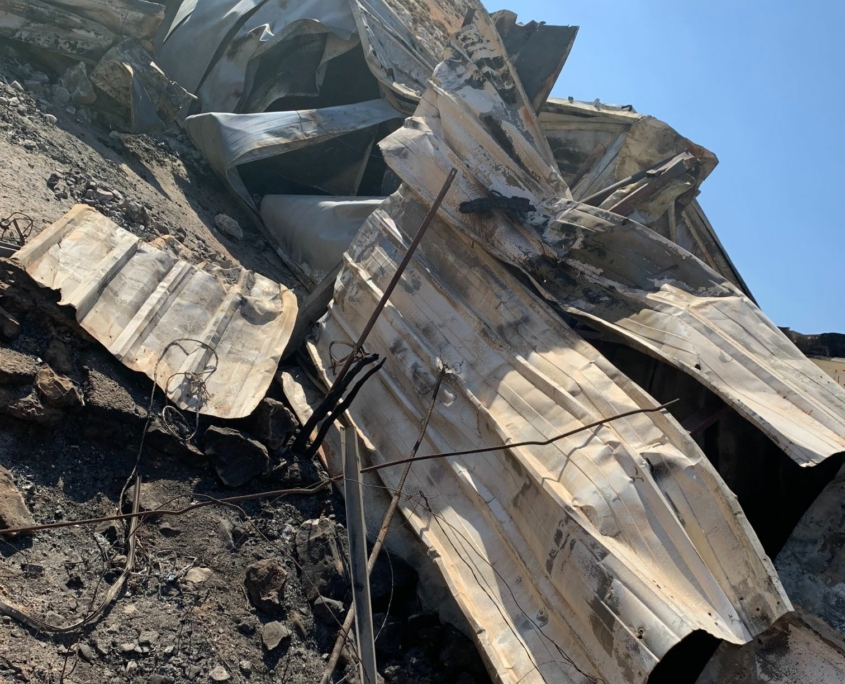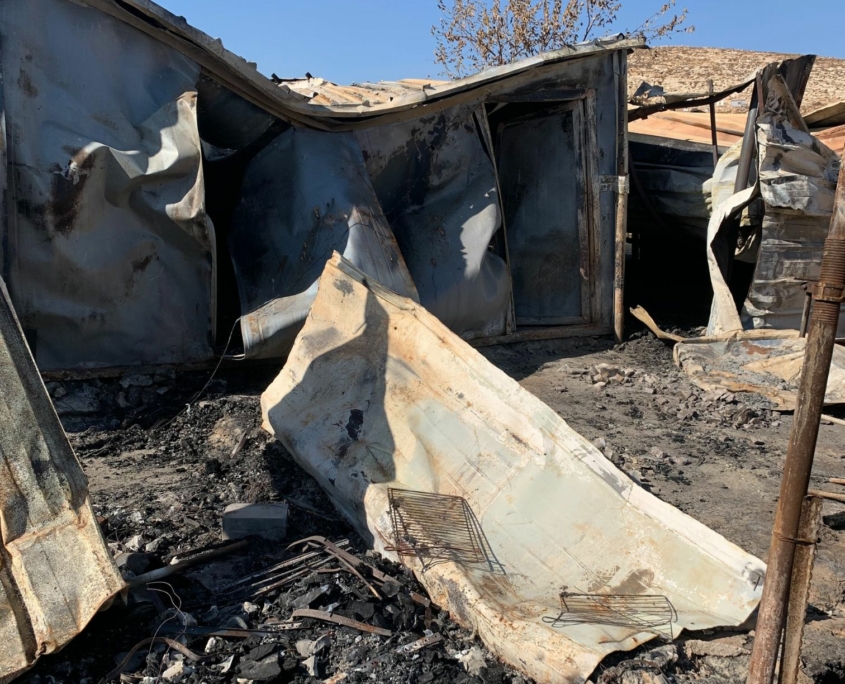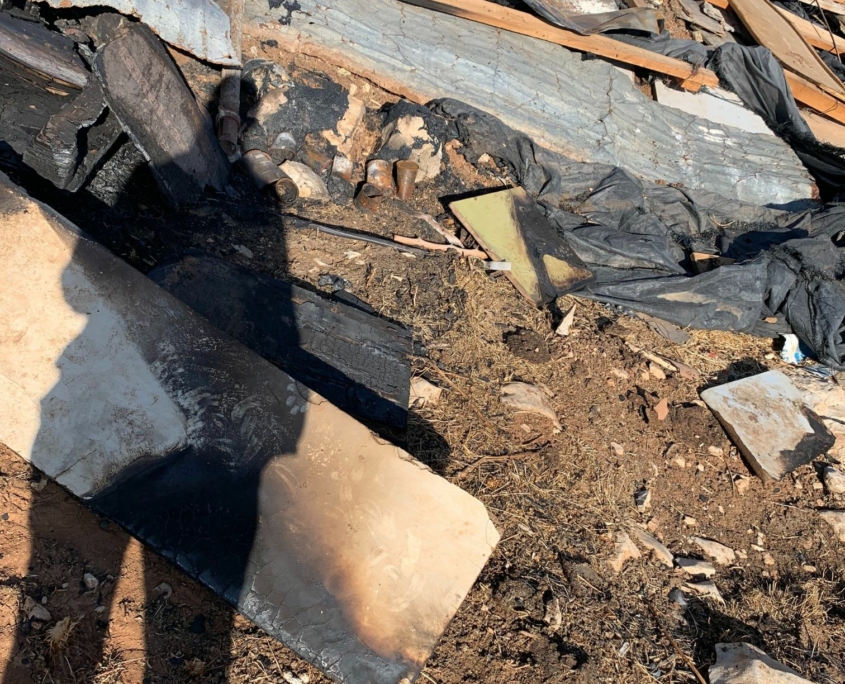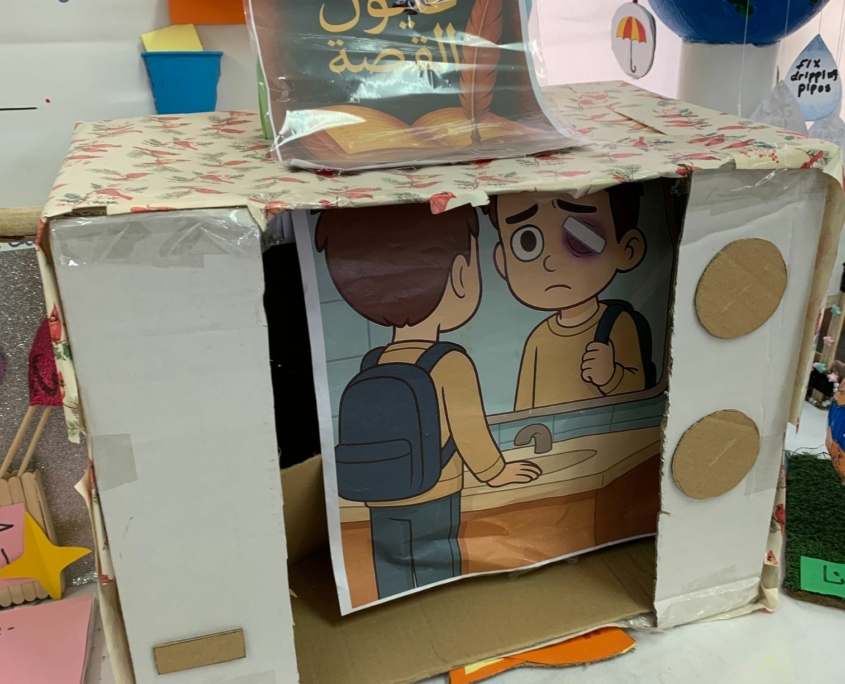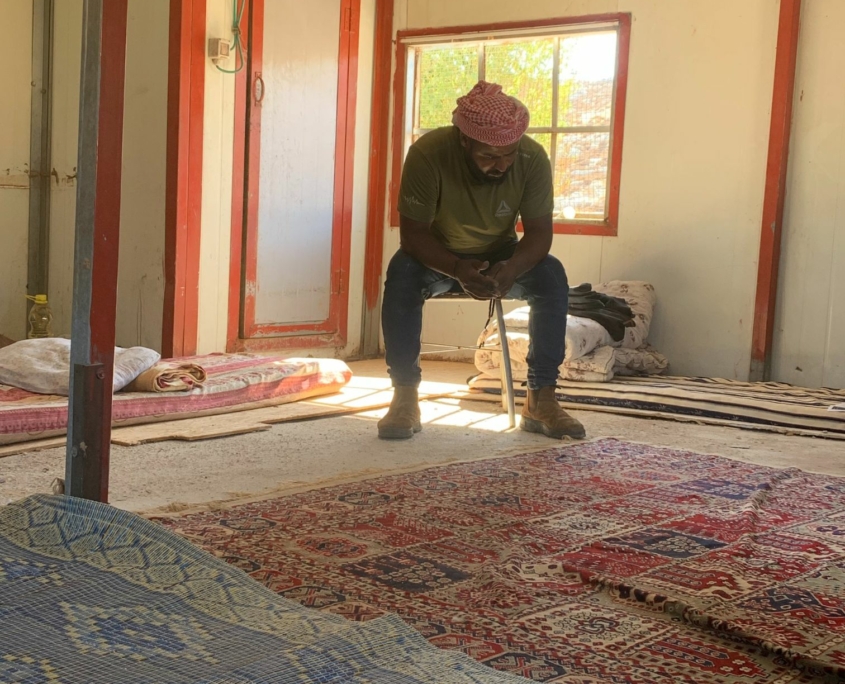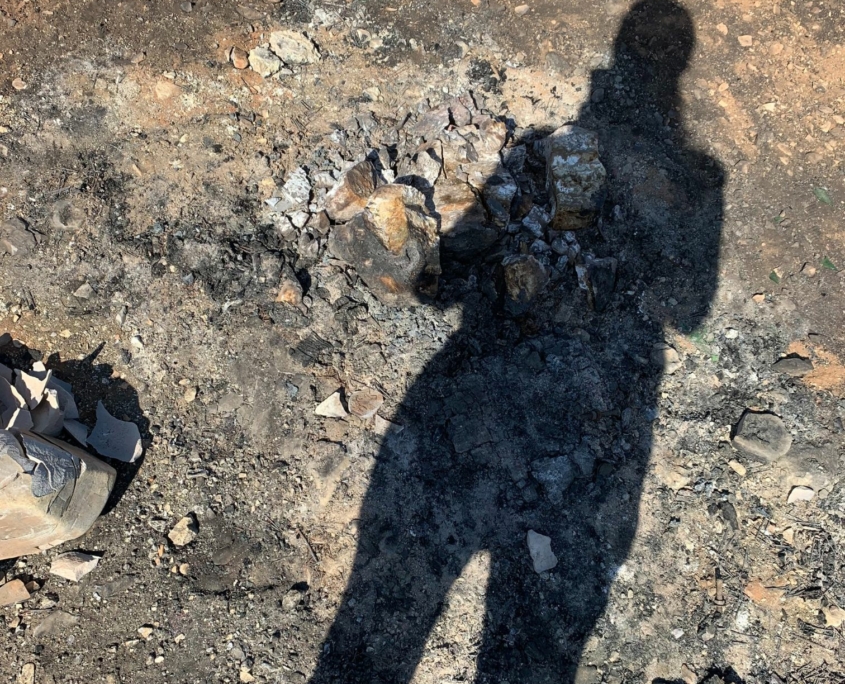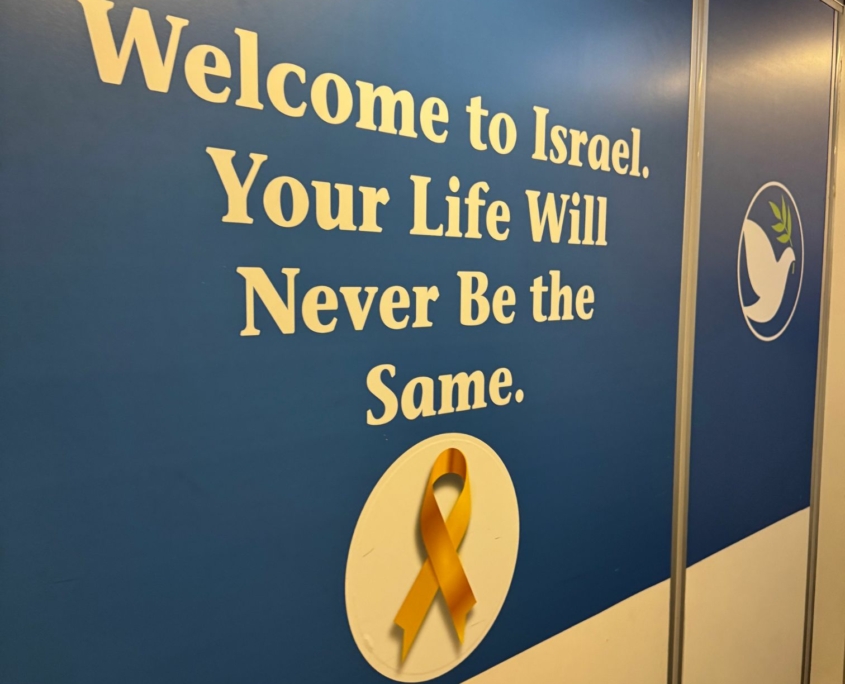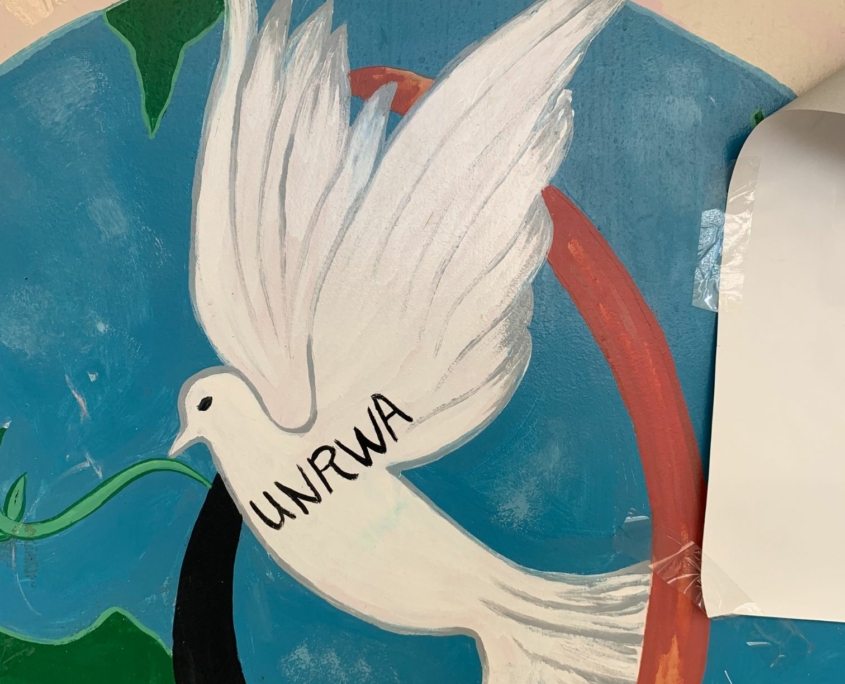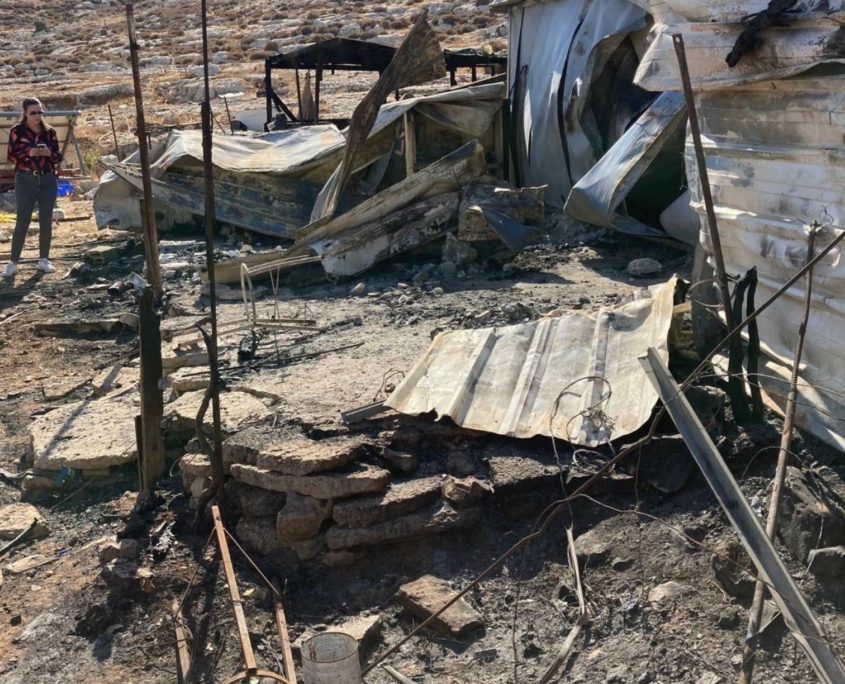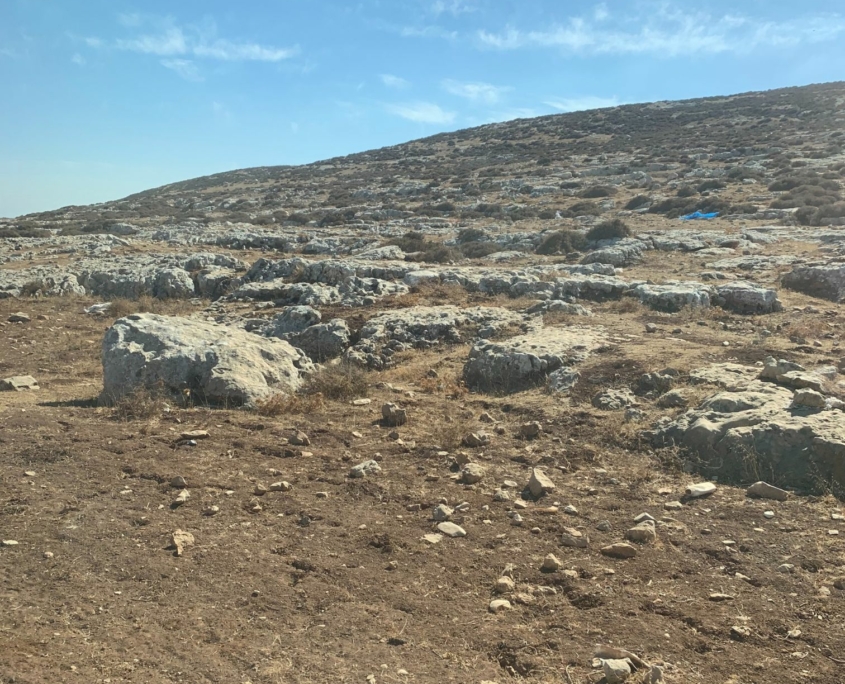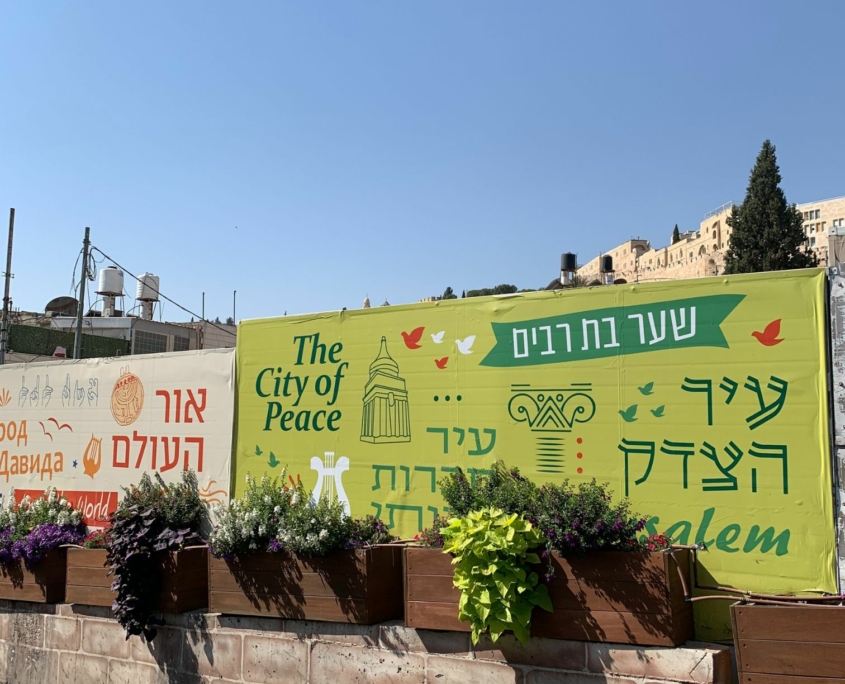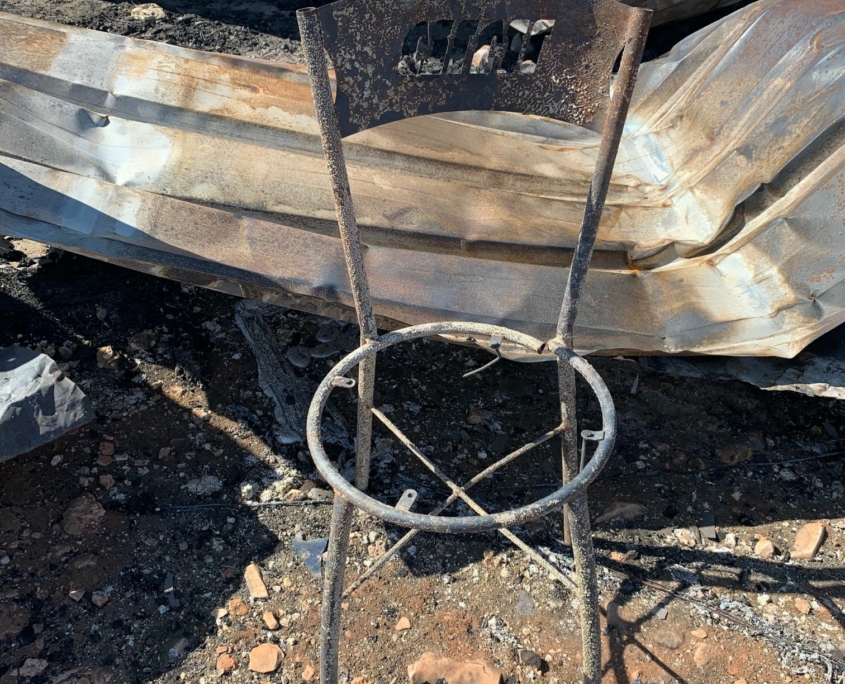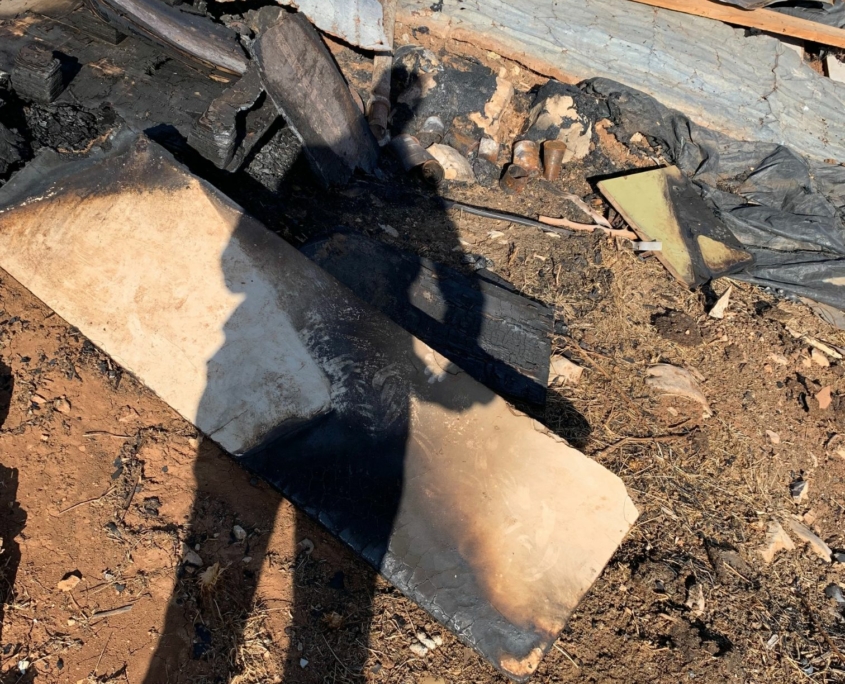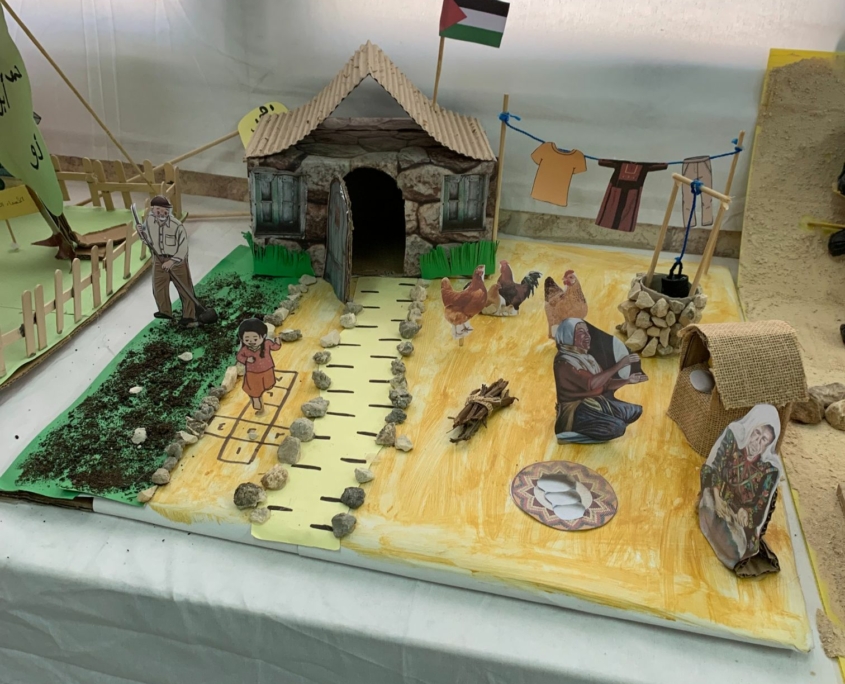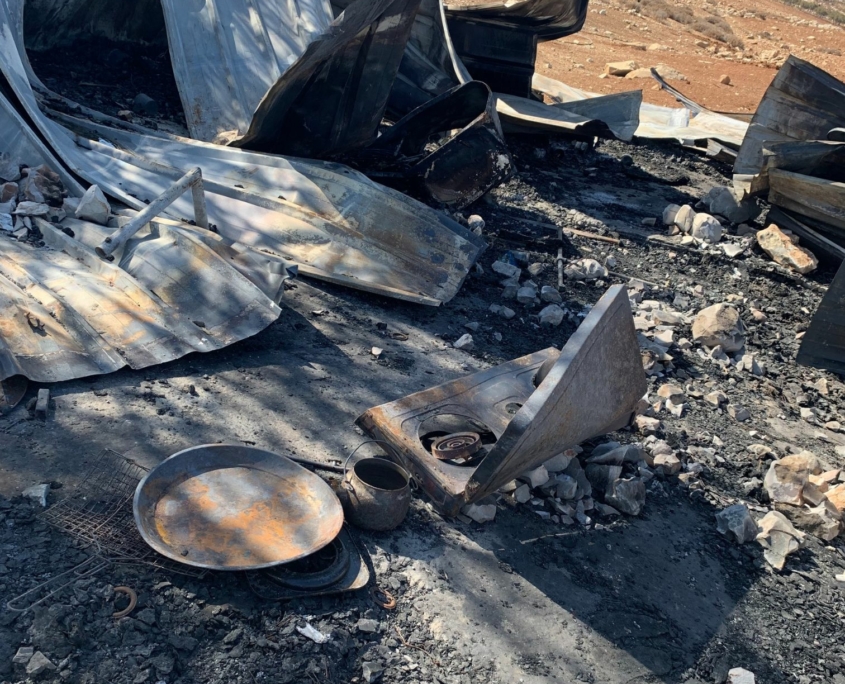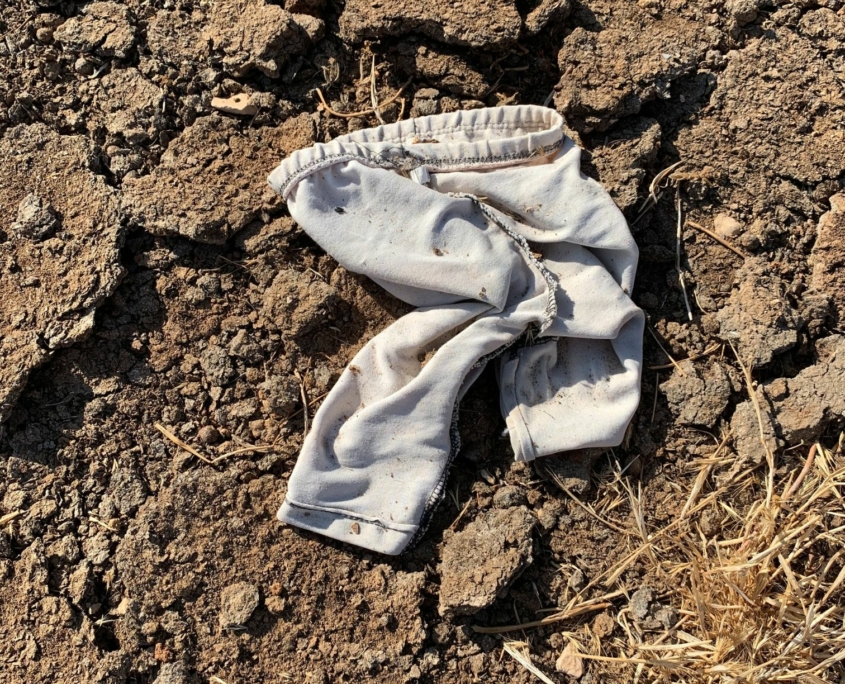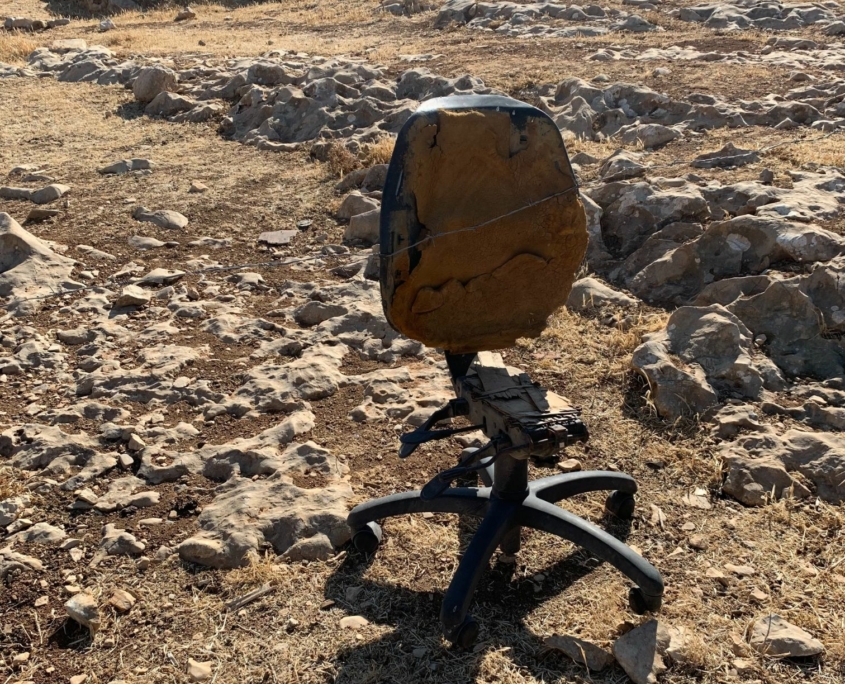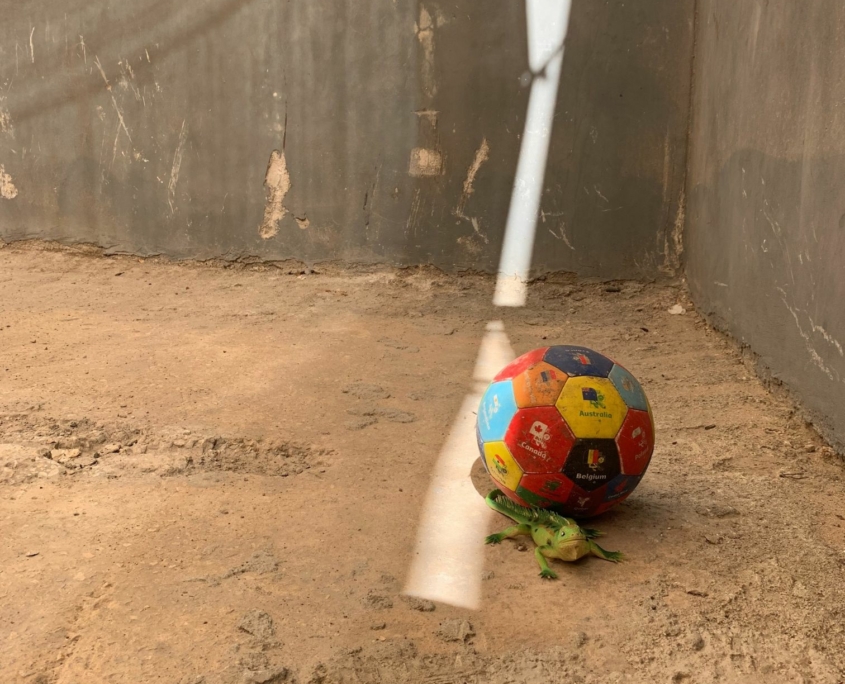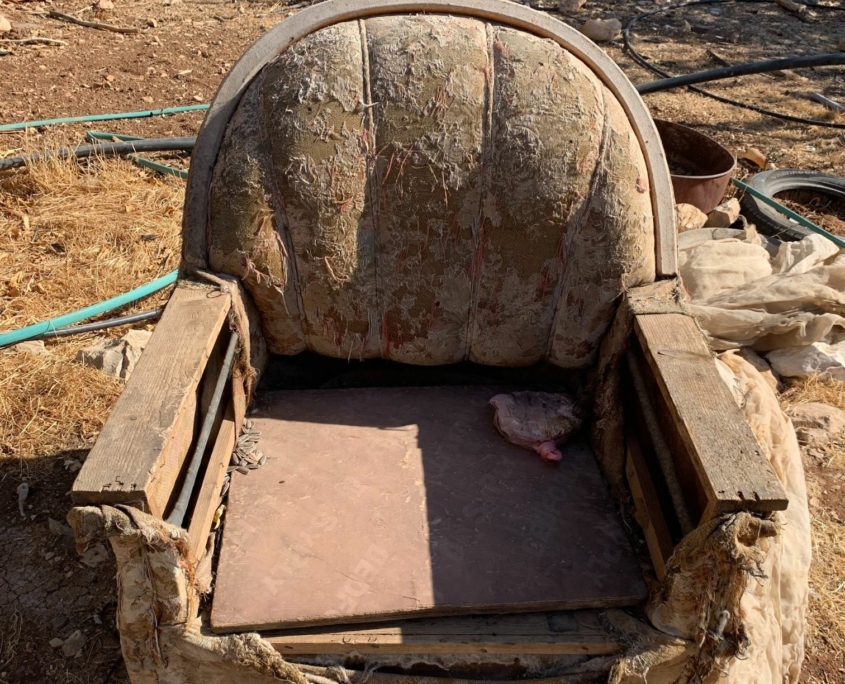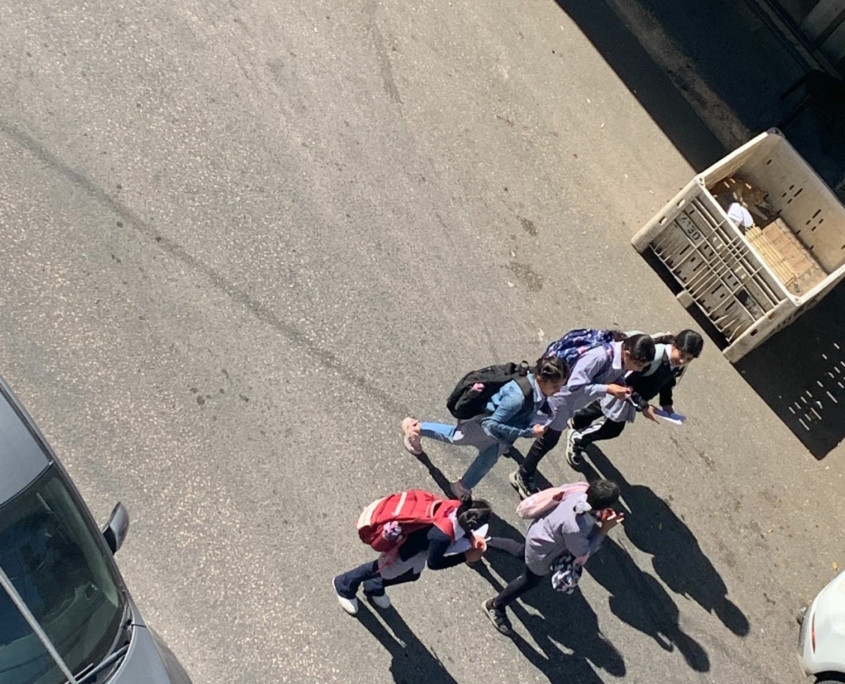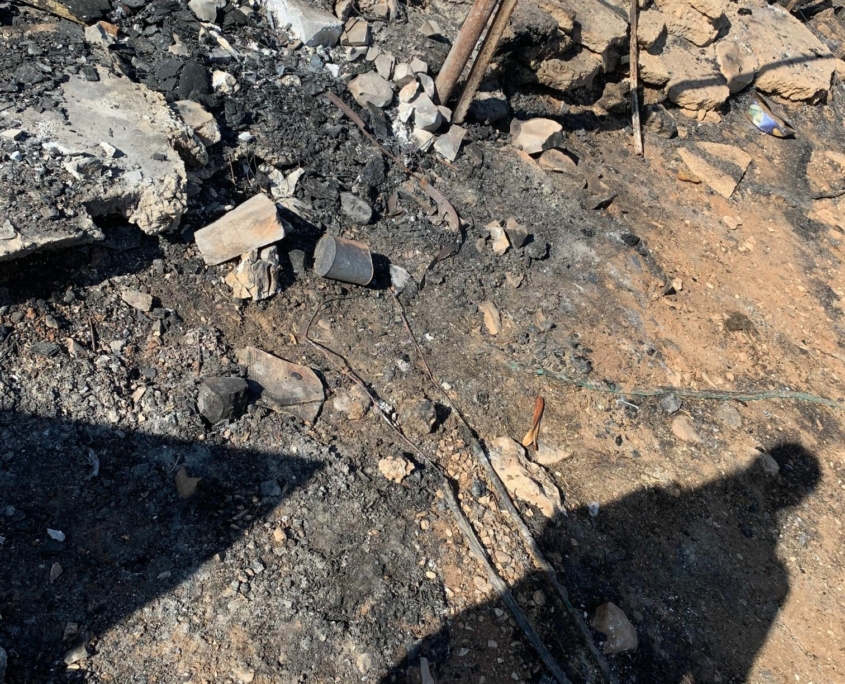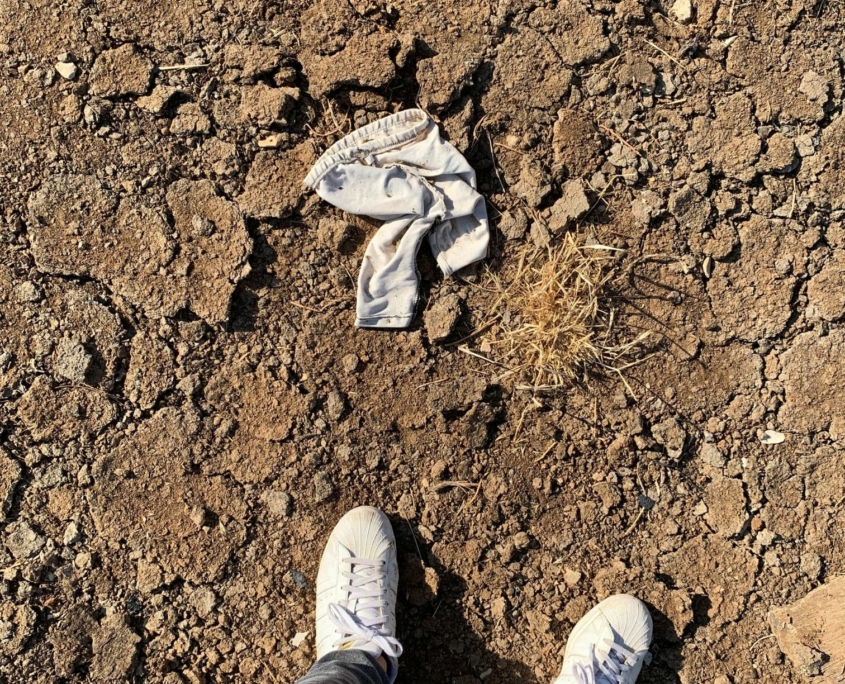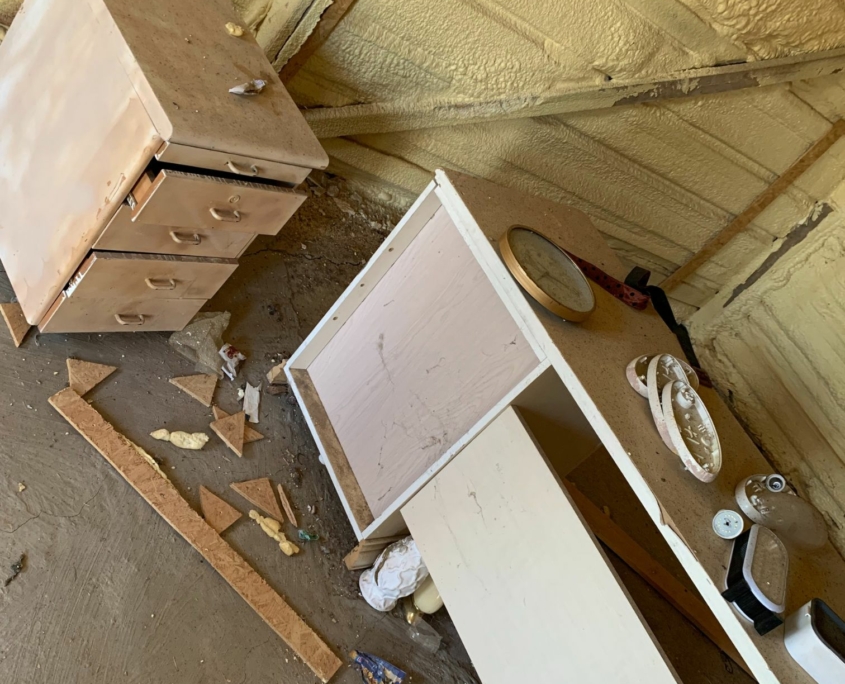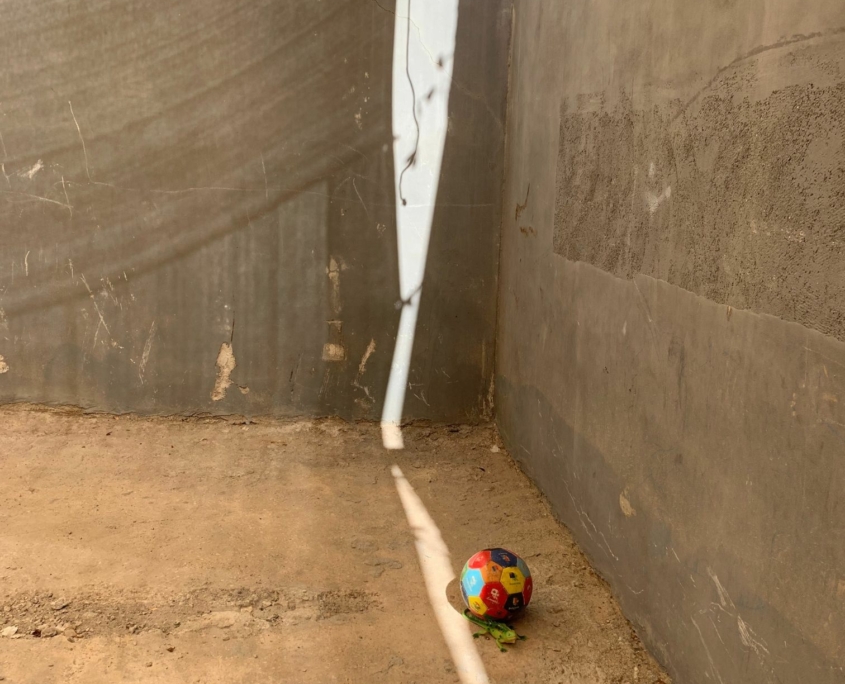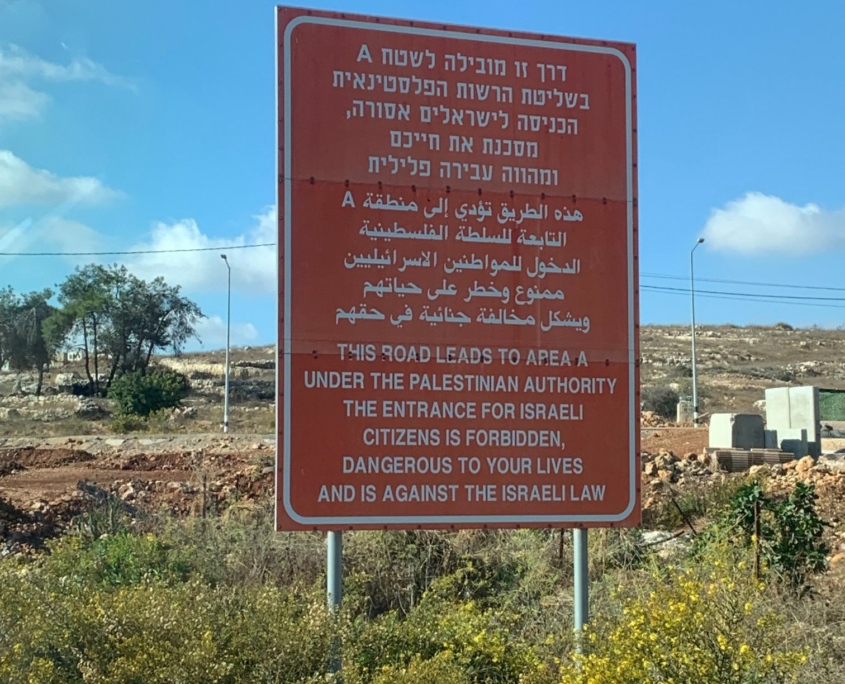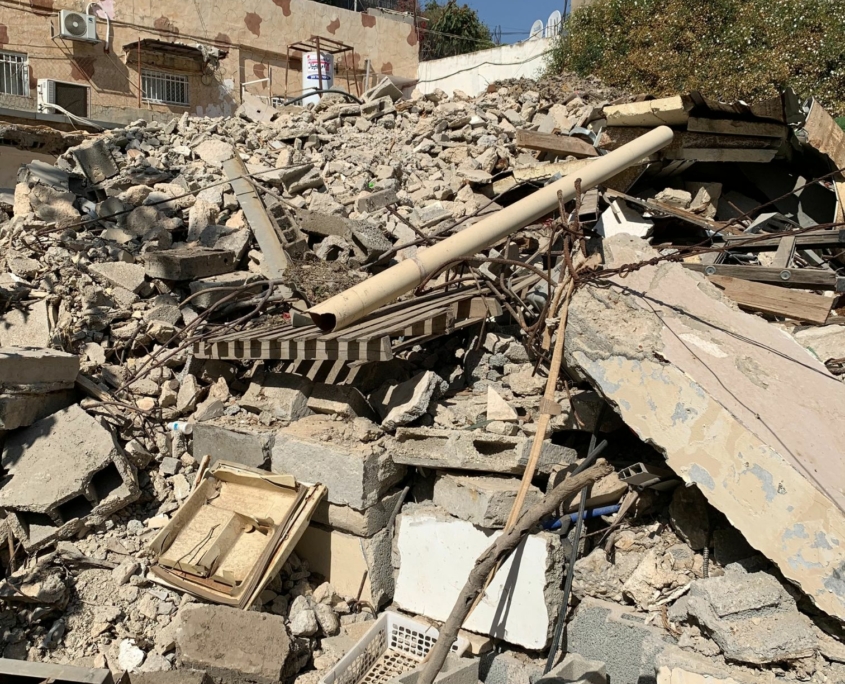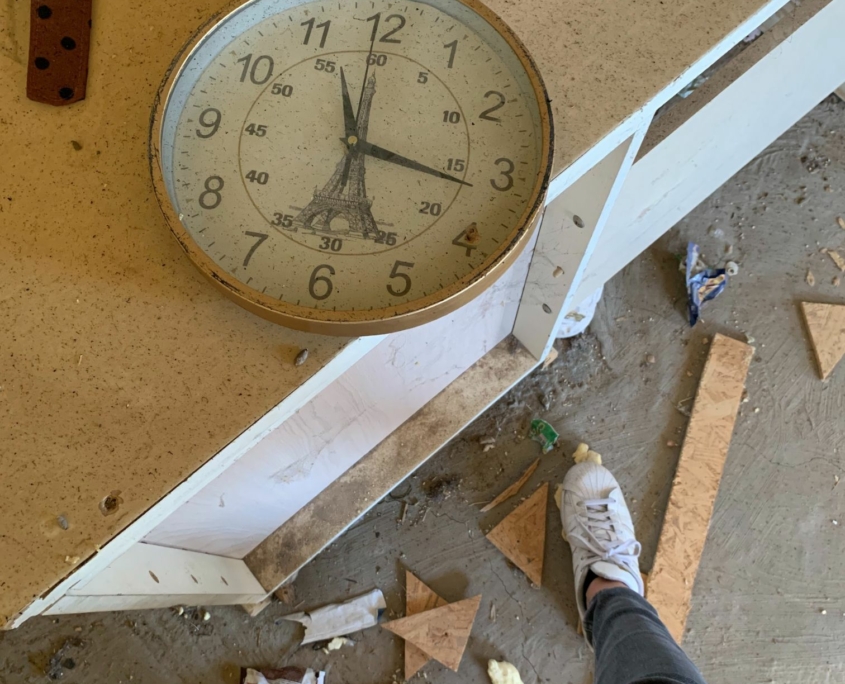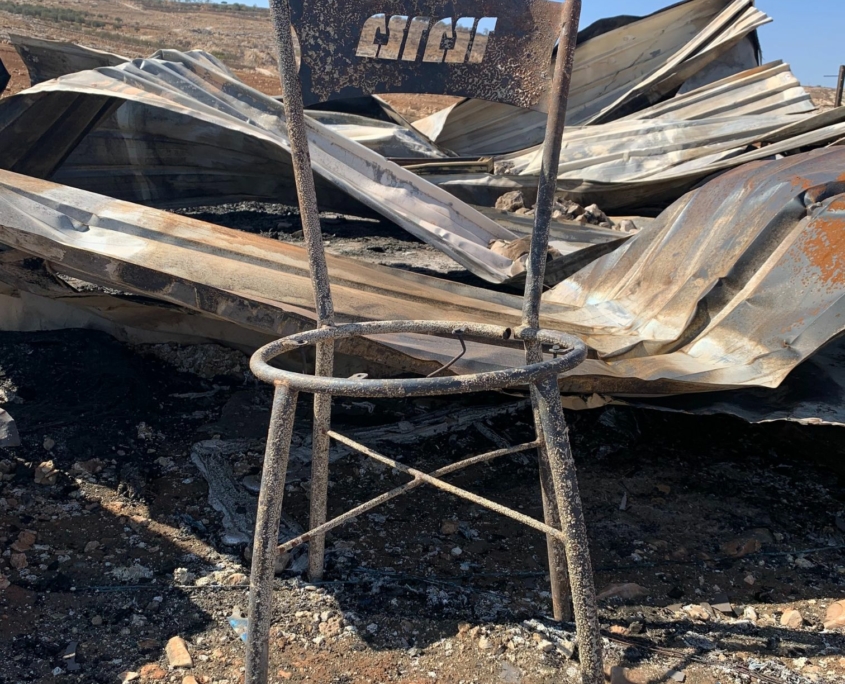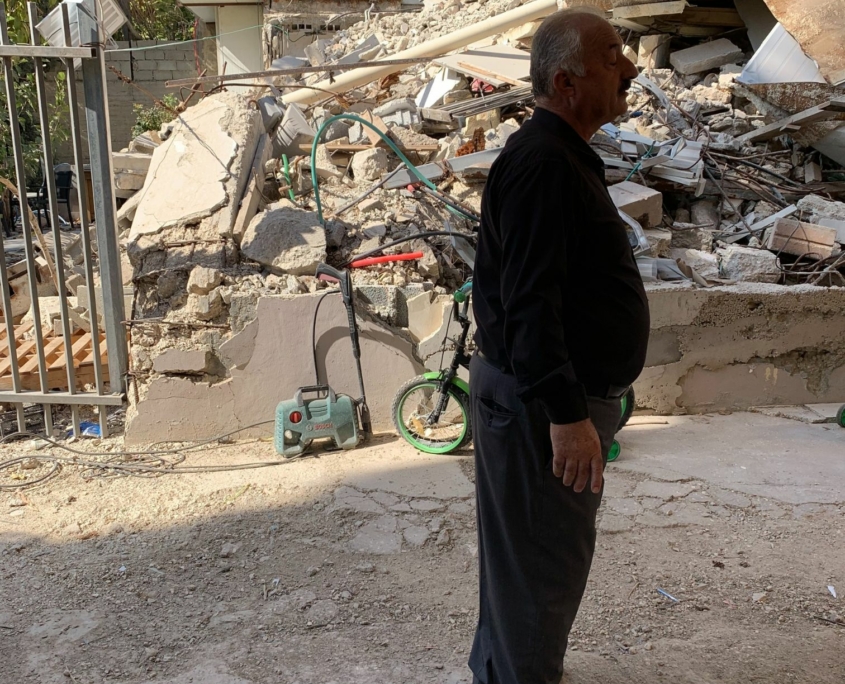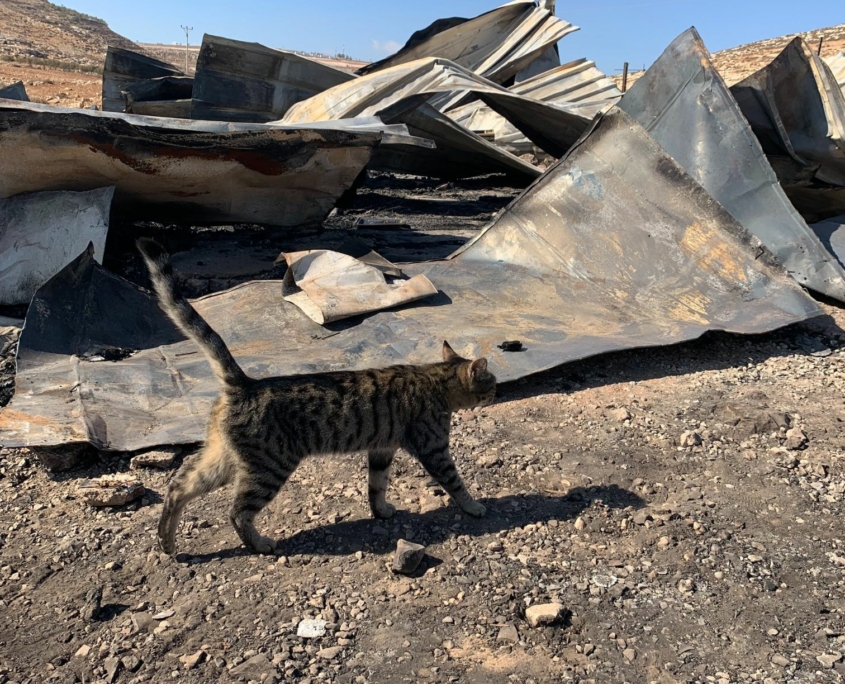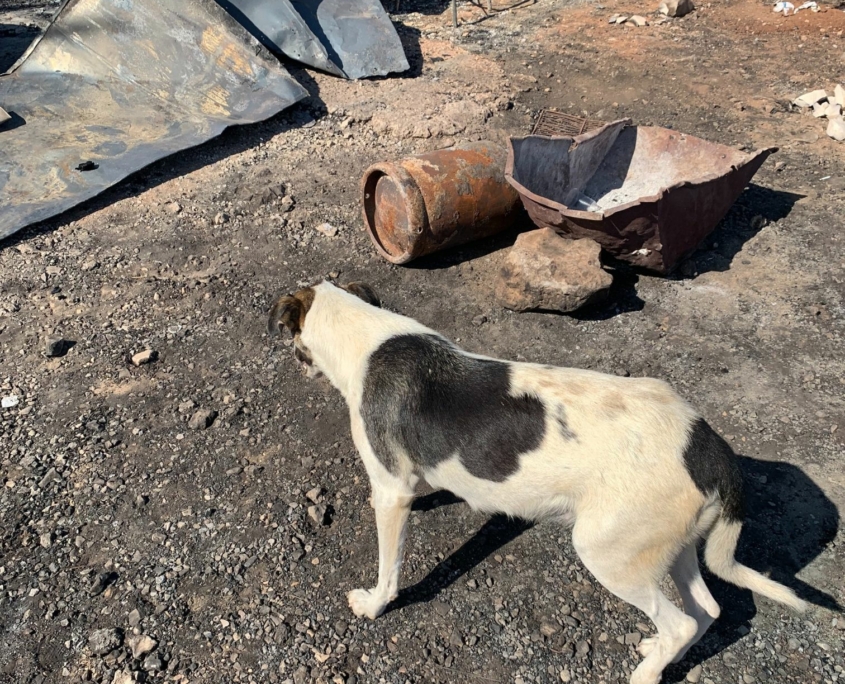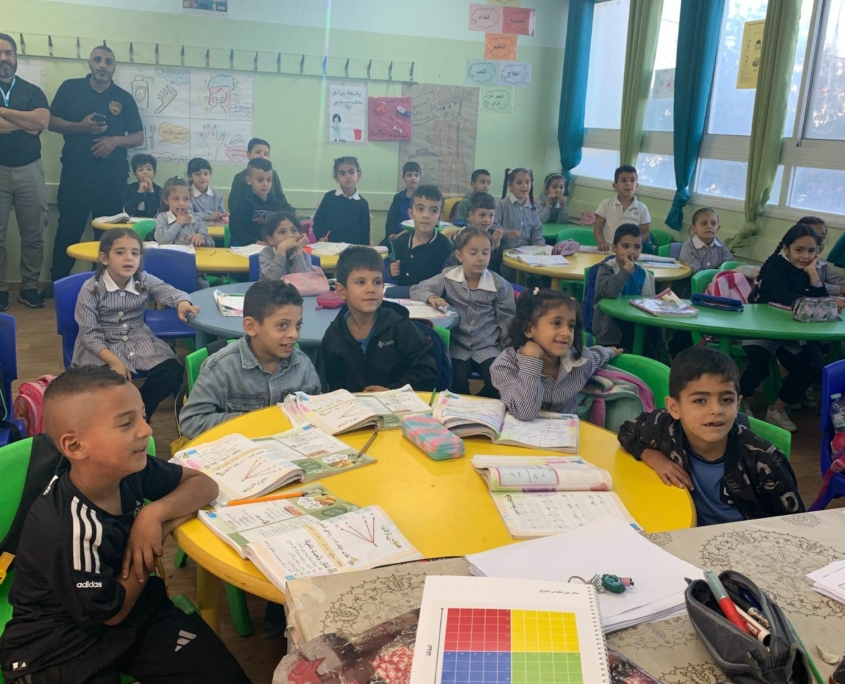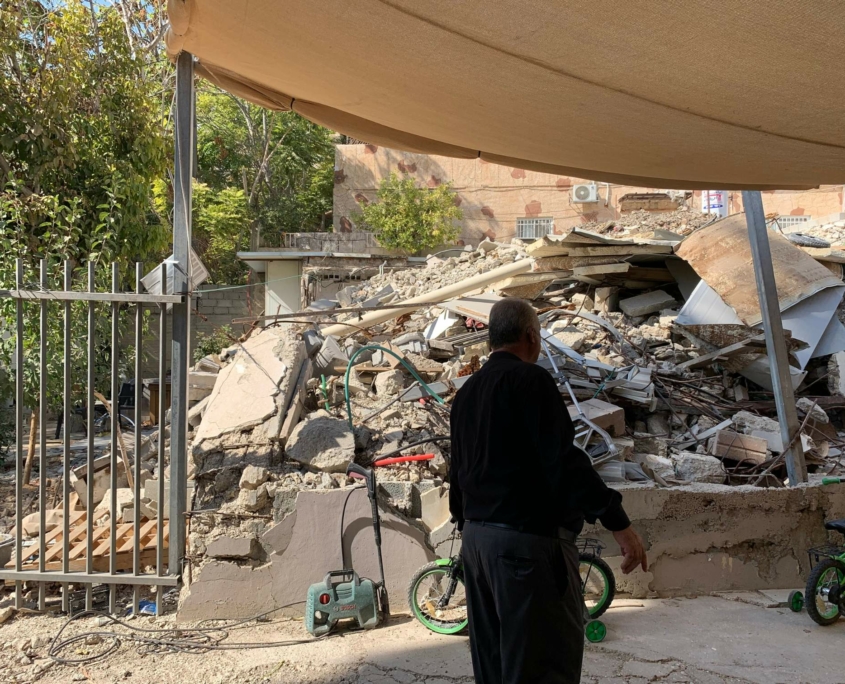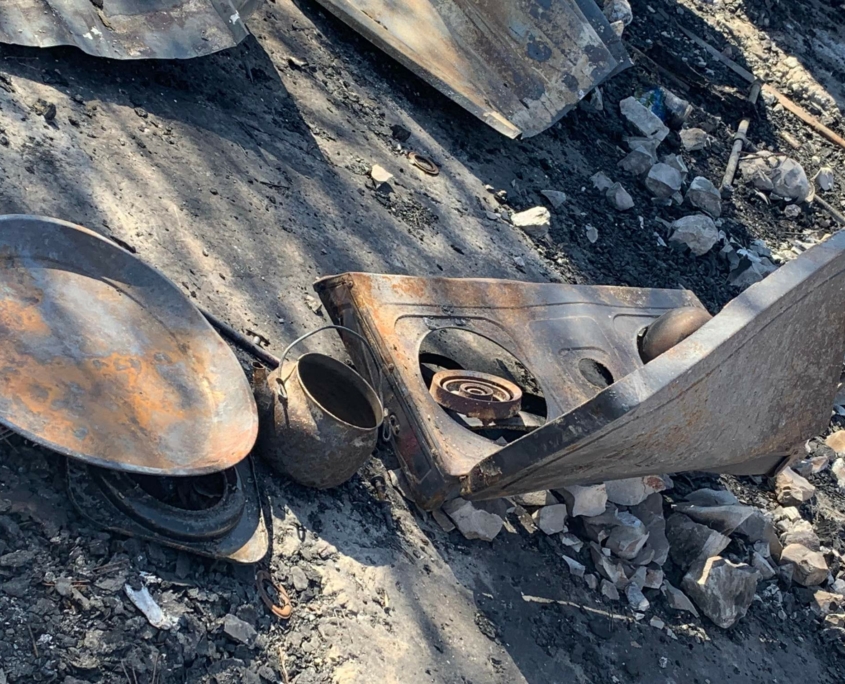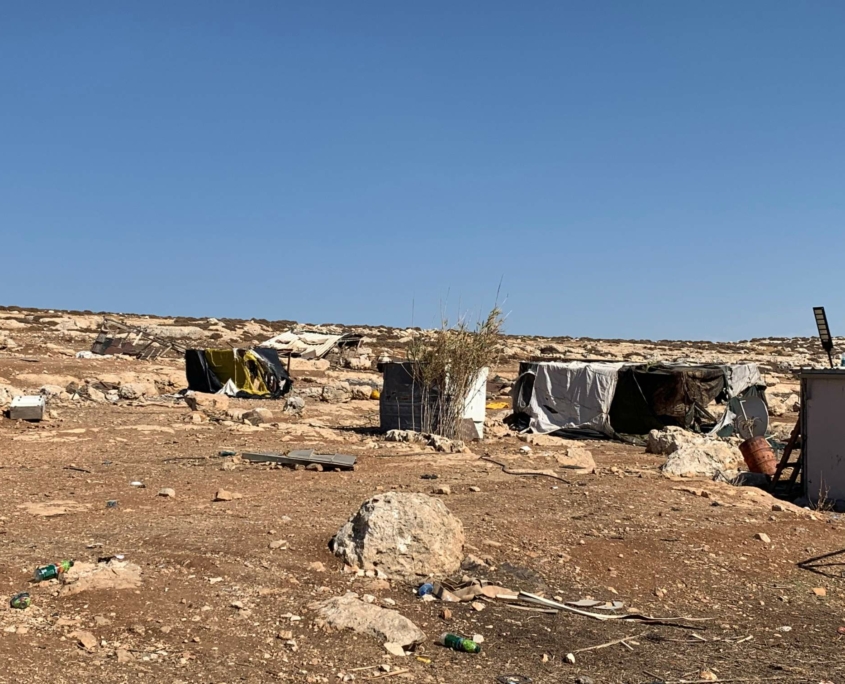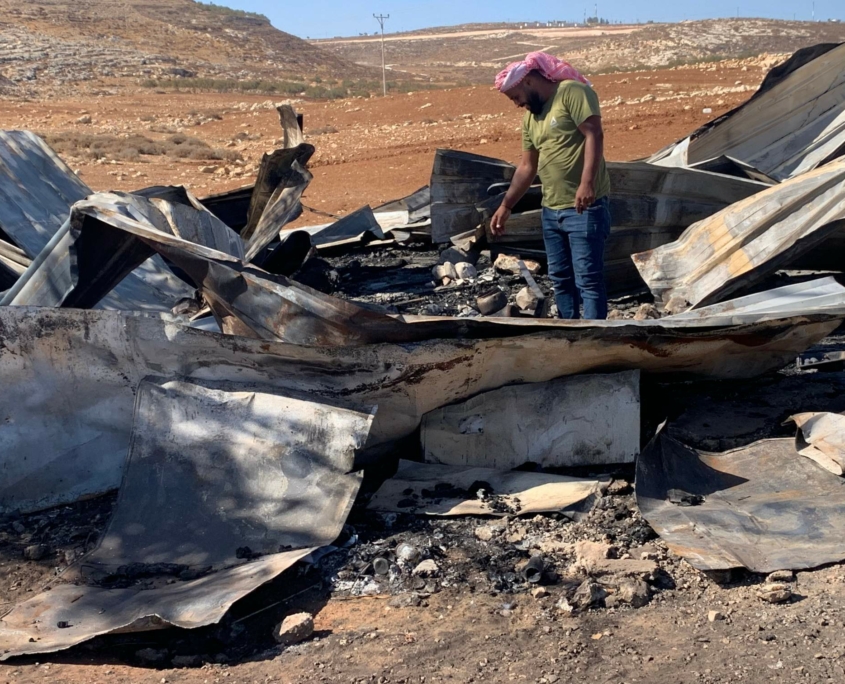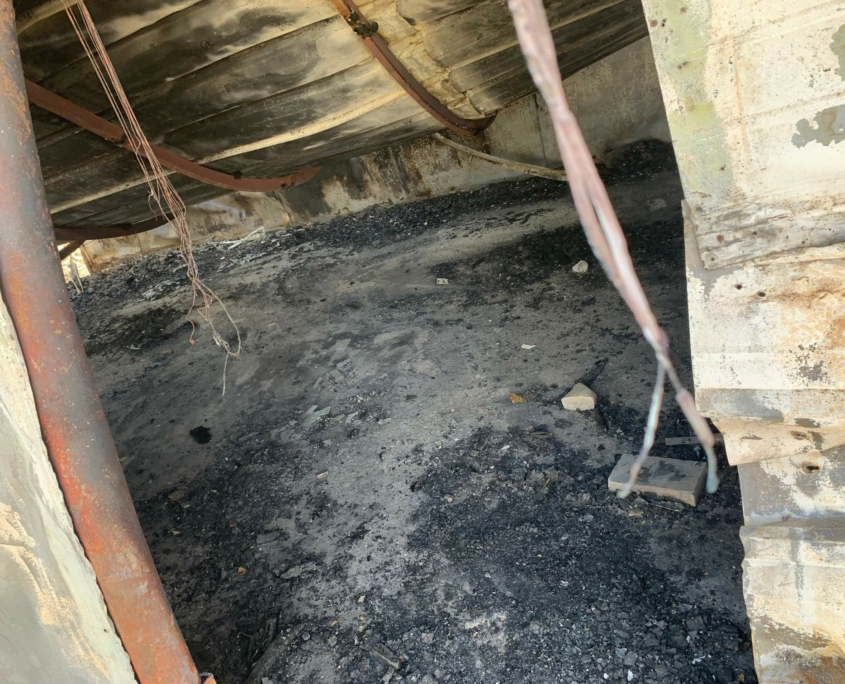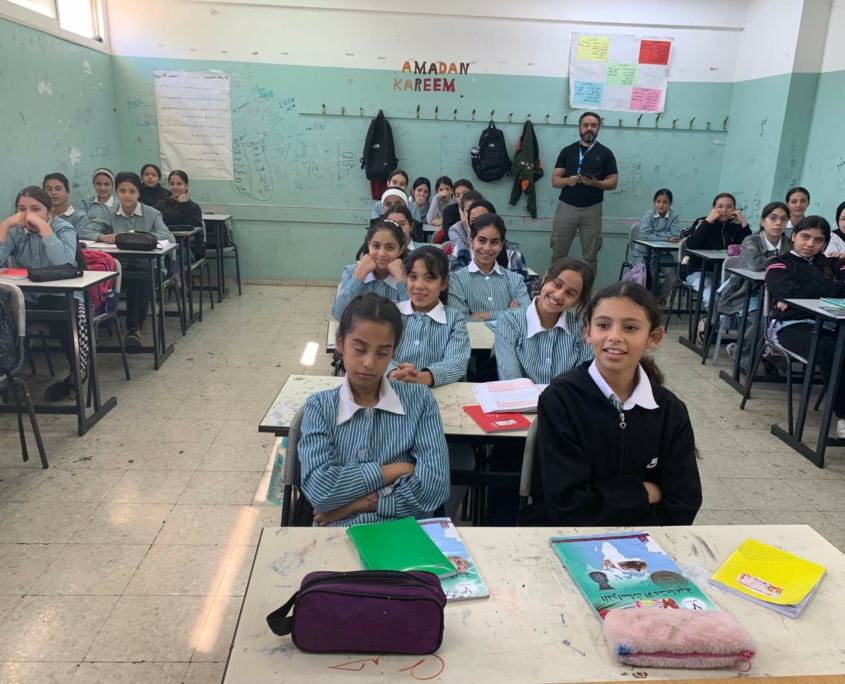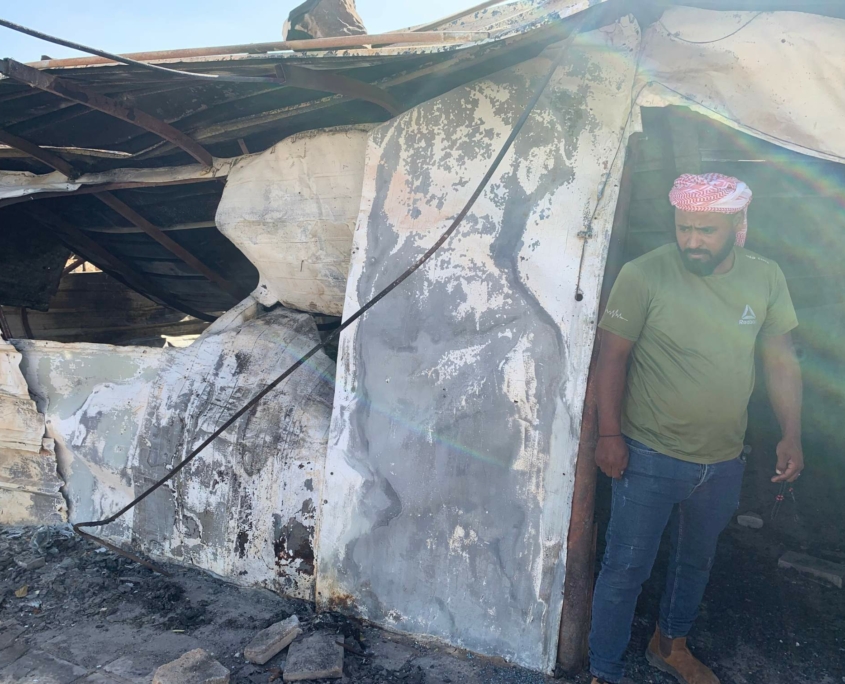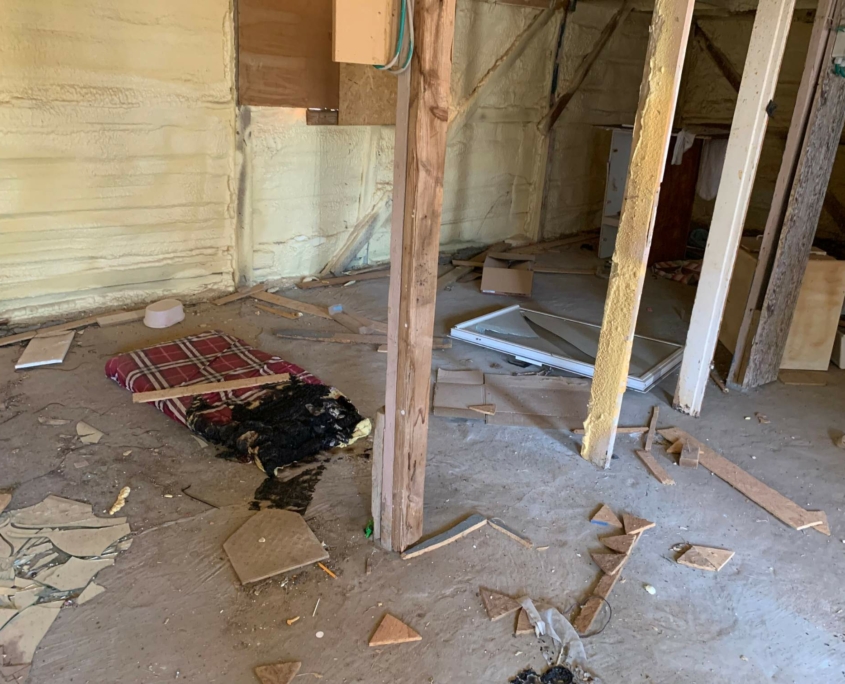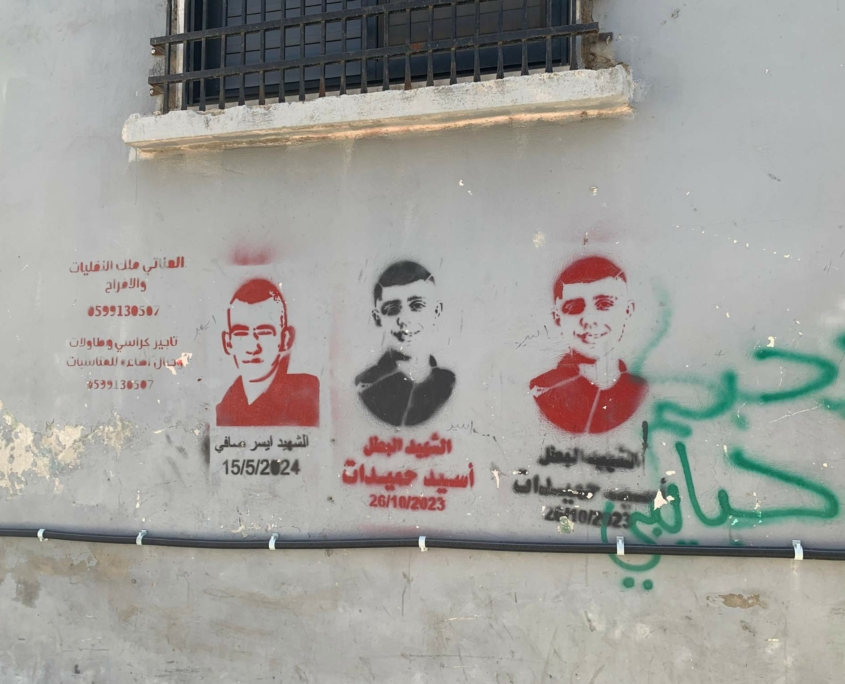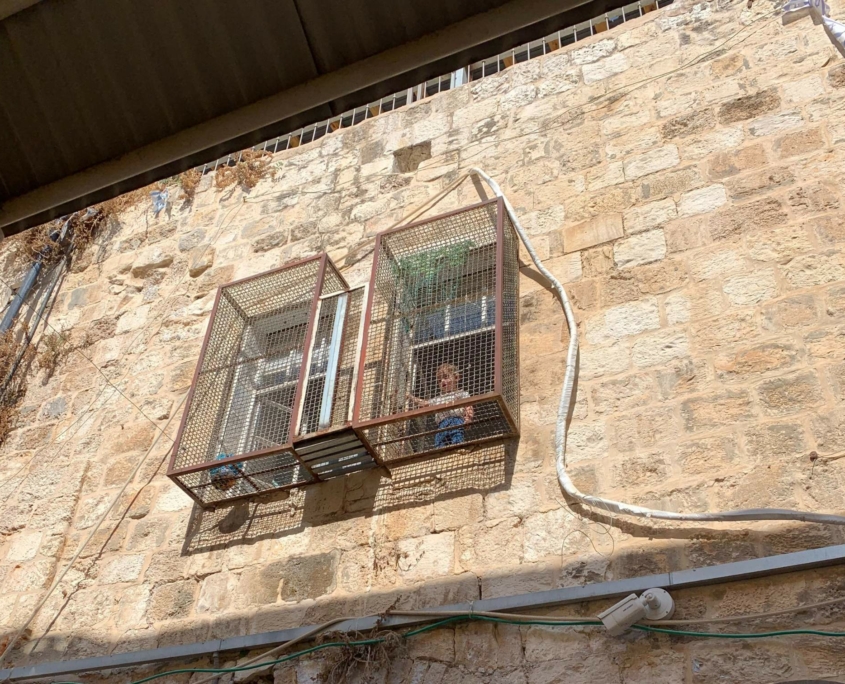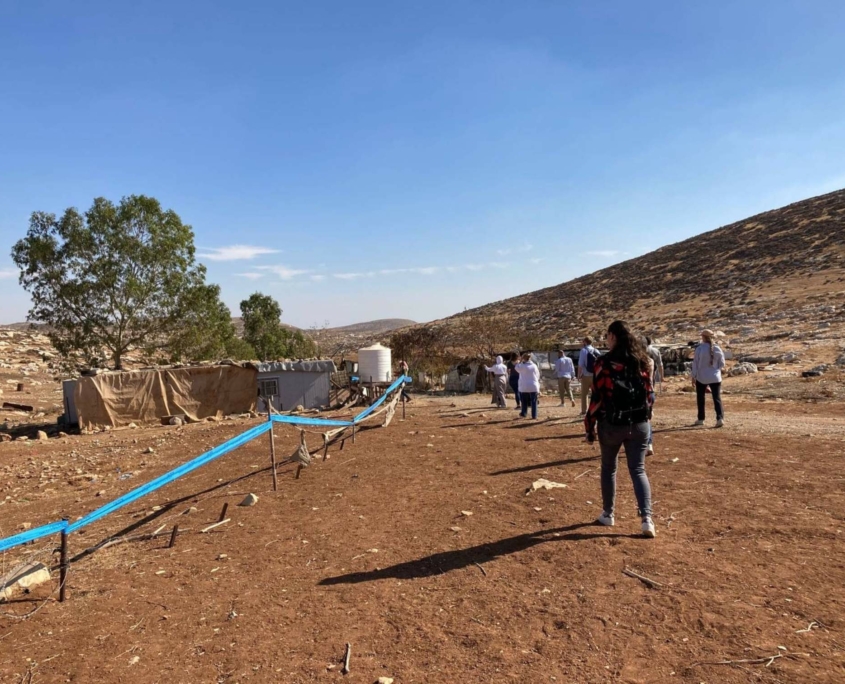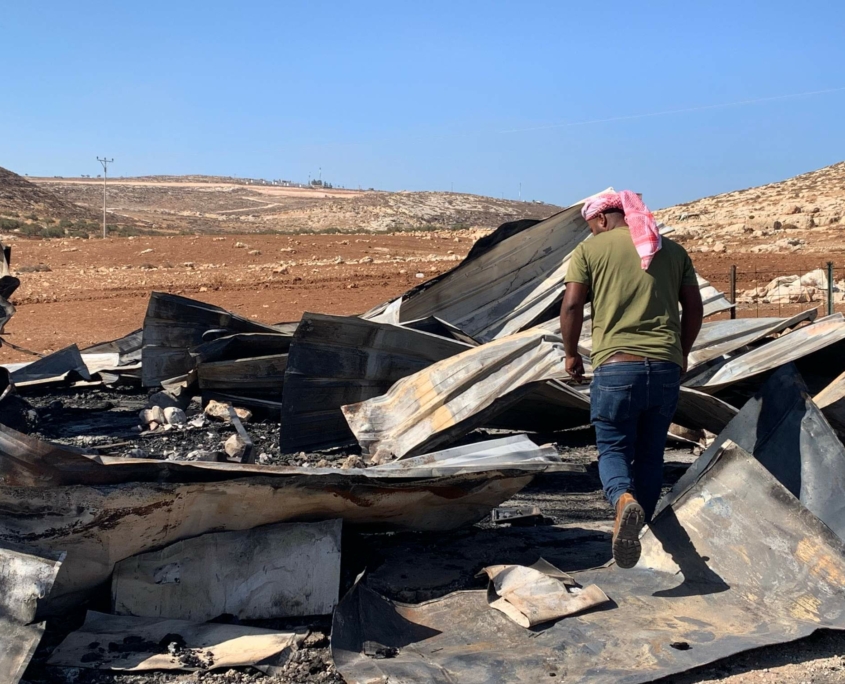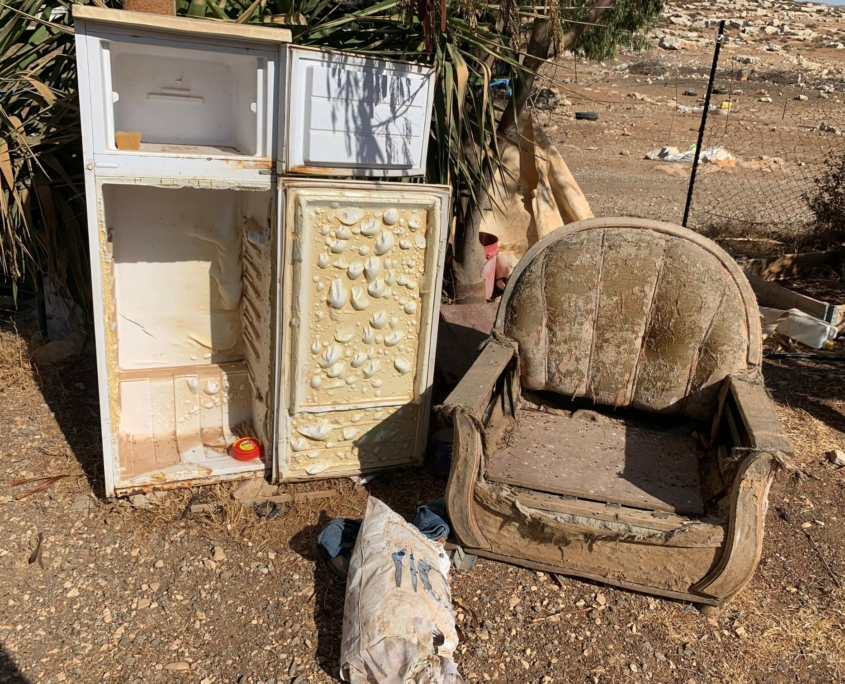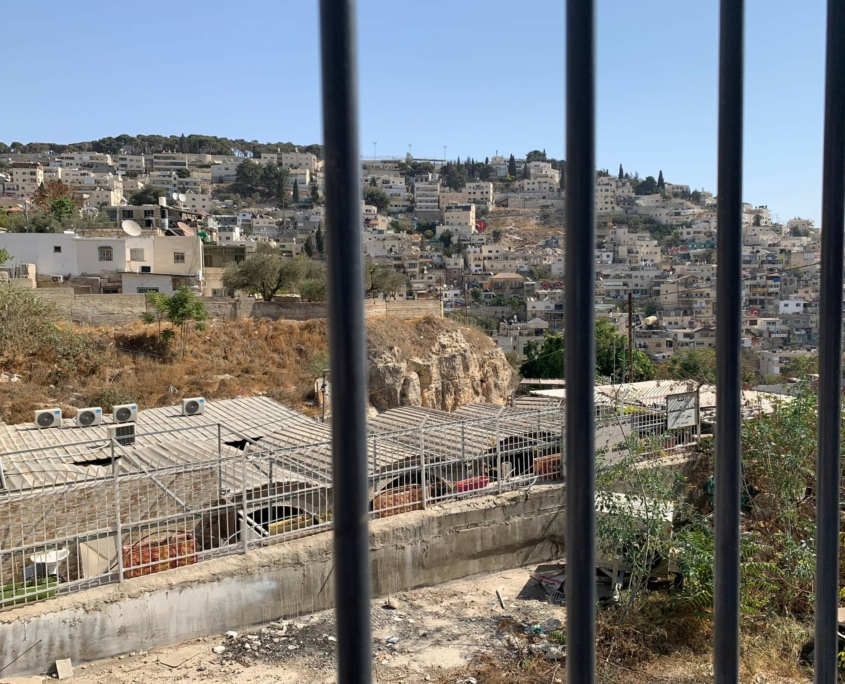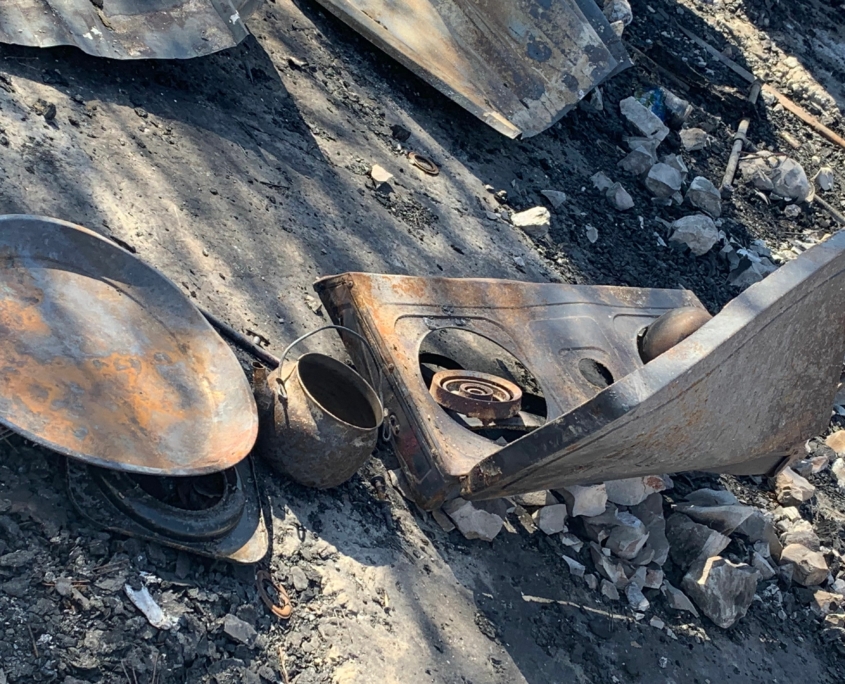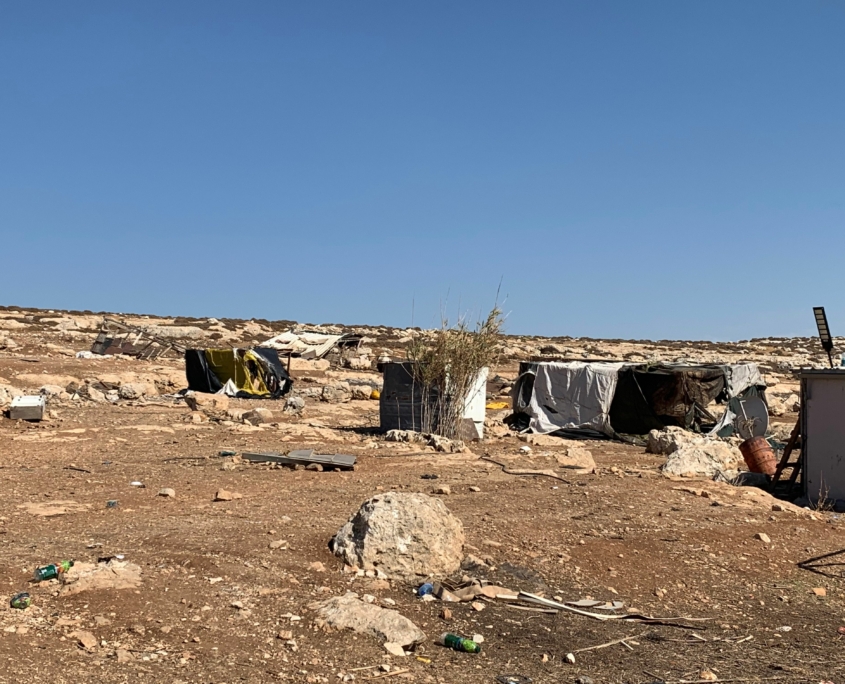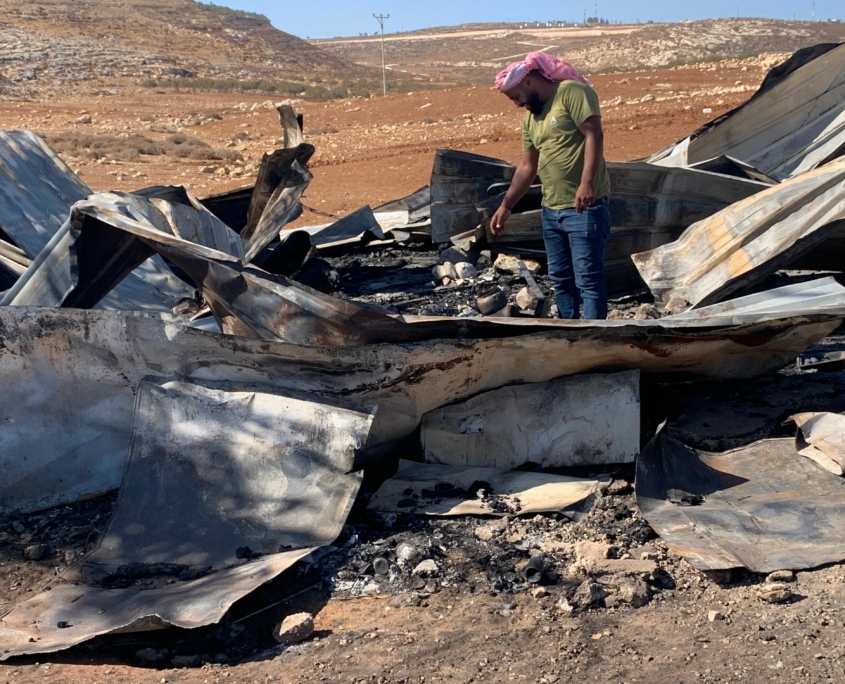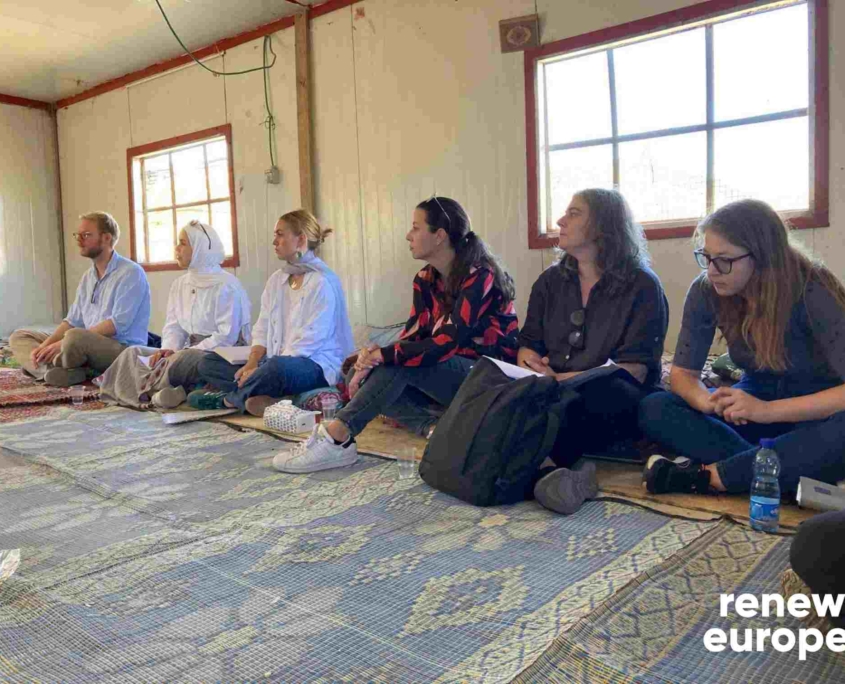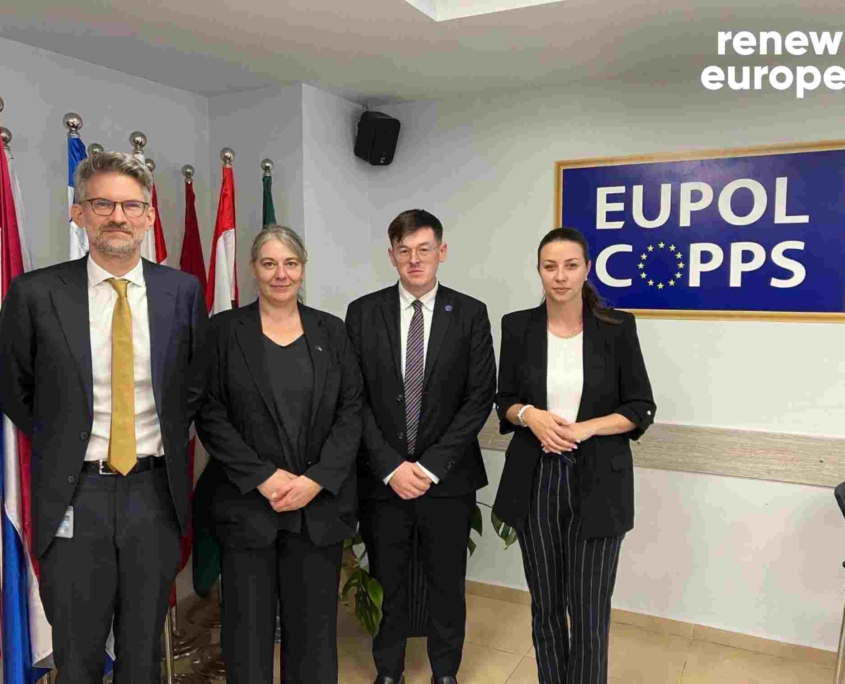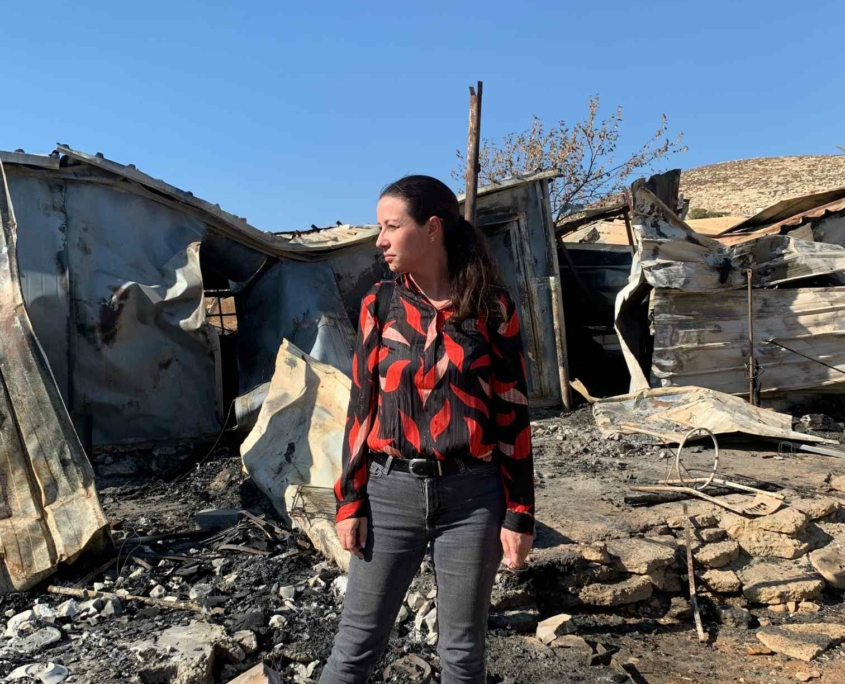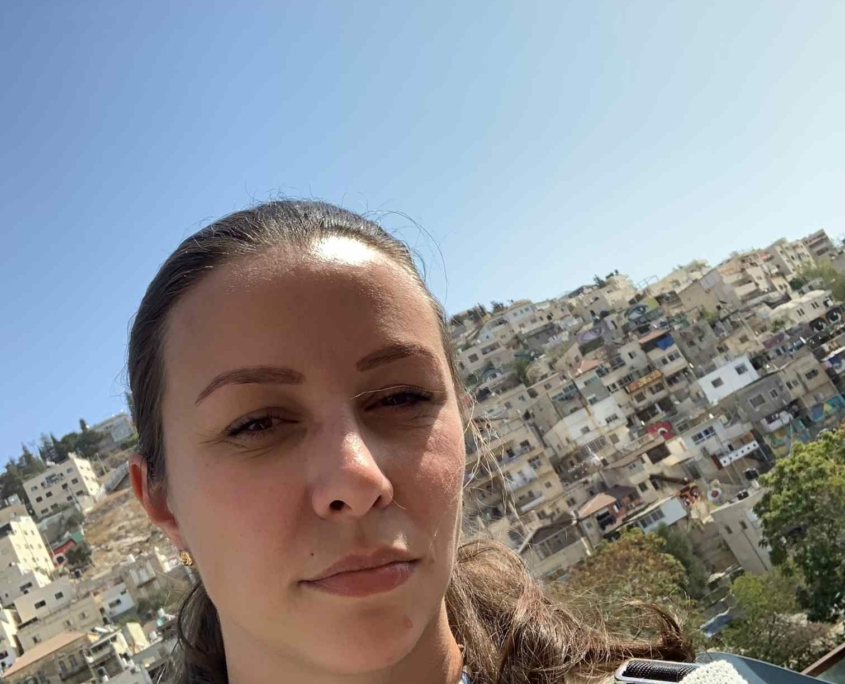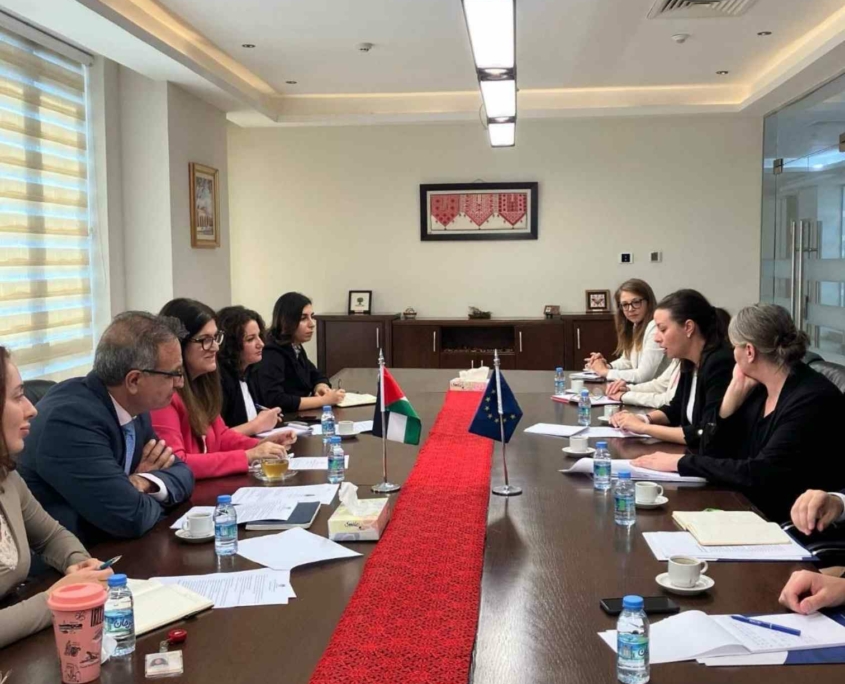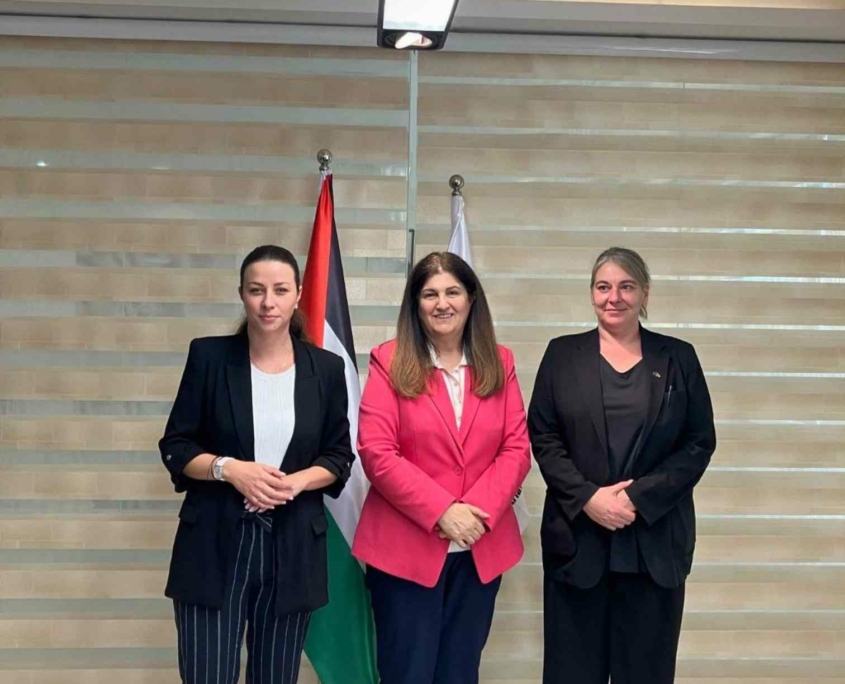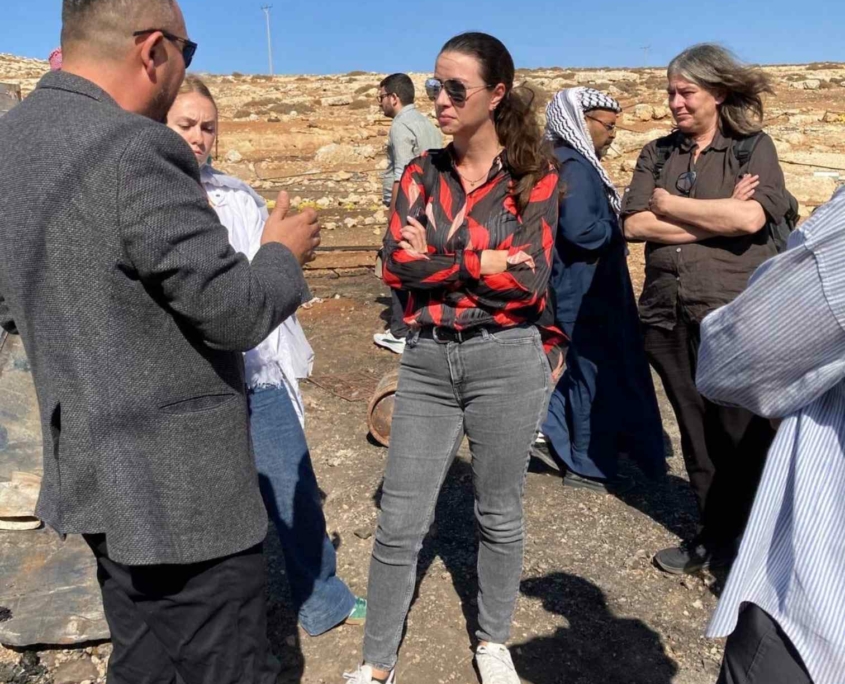The first day of the mission: crossing Israel into Palestine. Given that everything had gone wrong even before departure and it seemed that we would not be able to carry out the mission (again), no one dared to predict what would happen at the airport in Tel Aviv.

Of course, many people hoped that we would not succeed. Many people also lobbied that we would not succeed. In the end, they did not succeed, but we did. I have to be honest and say that this was also due to the very direct support of the leadership of the European Parliament. In short, we had no problems at the border and the day after our arrival – in the last week of October 2025 – we began the official part of the three-day meetings and visits.
Already at the security briefing – in addition to the urgent instructions that we had to know just in case, from the possibility of an attack to the response if anything happened – we were warned not to fall for the impression of “normal” everyday life.
Because everything is far from normal…
At practically all meetings, our interlocutors warned us that the world is too quick to accept agreements that are just the tip of the iceberg. A patch, a virtual ceasefire, while humanitarian aid is still not enough, the attacks have not ended, and the number of innocents killed is still growing.
Although it certainly seems to many from the outside that everything is as “normal” as possible in the West Bank, in reality it is no better off. The violence there is less visible, but no less brutal. The latest report from the relevant United Nations office mentions 264 attacks by immigrants in just one month, an average of eight per day. Eight. Per day.
The only condition for normality – the way I can write it without quotes – is the end of occupation, apartheid, ethnic cleansing, genocide. And taking responsibility for all of the above. There is no alternative.
What is the point of the rules of international law if the rule of power (read: influence and money) prevails? Why do you even have some rules in the context of law if they are not respected, they asked me. And you know what hurts the most? That they are right. It is actually very simple. It is absolutely a problem when the rules are not respected. But an even bigger problem is when there is no responsibility for such disrespect.
No punishment.
A world that relaxes under the impression that everything is fine sends the wrong signal – that everything listed in the previous paragraph is fine. That no alternative is needed.
The European Union is present in Palestine, and is the largest donor, I would say. But on the ground it is becoming clear that no such aid can replace political responsibility. Above all, it must not become a substitute for justice, an excuse for inaction.
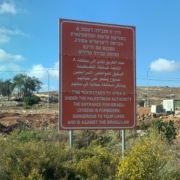
The number of illegal settlers in the West Bank is increasing. There are hundreds of thousands of them, according to official figures, almost half a million, and I’m not even counting East Jerusalem (there are an additional 200,000 there).
Not only can all these immigrants march through the streets with weapons without any problem – everything they do, they do with the knowledge and (in)direct support of the military and the authorities. Soldiers, ex-soldiers, civilians, everything is intertwined, uniform is no criterion.
I am not the biggest fan of generalizations. You will never hear me say that an entire nation is evil. Or vice versa. But the fact is that in this case, an entire nation lives in fear, while the cheaper life through illegal settlements attracts another nation, which apparently does not even think about the legal, let alone the moral, consequences.
These are not empty words.
Palestinian society is facing an existential threat, we have heard this from both representatives of the Palestinian Authority and from all NGOs – including Israeli ones. Tens of thousands of children have been killed, tens of thousands of children have various health problems, tens of thousands of children are orphans.
The feeling of injustice has touched almost every conversation. Palestine is being decided without Palestine. The international system maintains a state in which Palestine is forever waiting. For permission, for help, for justice. With all due respect and reverence for historical events, but the international system also maintains a state of eternal victims – and no, in this case I am not talking about Palestinian women and men.
“Because they can. Why can they?”
The second day of the mission was dedicated to civil society and local organizations in East Jerusalem – Palestine.
Everyone pointed out that the situation is far from good. That both the Israeli authorities and Hamas are deliberately dividing Palestine, specifically Gaza and the West Bank. That humanitarian workers are exhausted.
Can you imagine living your whole life right by the sea and never trying fish? Not because you don’t want to, but because you’re not allowed to. Can you imagine?
Can you imagine having olive groves, and in the middle of the peak season, someone simply steals your fruits – which you, of course, picked, worked hard for – because they can?
What about if someone breaks into your house and asks you if you’re scared right now? And tells you that he’s going to cut off your head, yours, your children’s heads, if you don’t leave? Can you imagine?
Just like that. Because he can.
Don’t ask yourself why!
I spoke to young activists, as well as journalists. They all emphasized a sense of numbness and a loss of meaning. Even a sense of guilt for living.
“Does Gaza really have to bleed to make its to the news?” How should one answer such a question? Or to the statement that they are not asking for charity, but for HUMAN rights?
You tell them they are right. Because they are. And then? You agree that the European Union is a prisoner of some of its own political mechanisms and consensuses, not to mention internal politics and some historical feelings of guilt (which are unjustly associated with the present, by the way). Does the EU’s voice carry weight? It could. Where is the “because it can” here?
Can you imagine the Palestinian people (read: I’m not talking about terrorists) thinking that they can? That they can avenge the deaths of tens of thousands of babies, children? Women, mothers? Men, fathers, brothers, sisters, aunts, uncles… PEOPLE.
People with a future. So can you imagine someone living there and watching all this, surviving through some lucky combination of circumstances, having nothing (anymore) to lose, and thinking: if the rule of law doesn’t apply, if there’s no accountability and punishment, then… can I?
When I grow up, I will be …
The two fields on the last day hurt me the most. First, the one that was the most full of good will, laughter, eyes in which you see not only a spark of hope, but sincere happiness when thinking about the future.
When I grow up, I will be a doctor! – Why? – Because I want to save the world.
When I grow up, I will be a lawyer! – Why? – Because I want to save my brother.
When I grow up, I will be an engineer! – Why? – Because I want to do good.
Did you notice the “because I can”? Me neither. While visiting a school in one of the refugee camps in the West Bank, I felt really bad. When you look at these children, at least in my case as the mother of a little girl, you think: what the hell?!

To avoid any misunderstanding, this isn’t really about whether you have children or not, because I honestly think something like that would be unbearable for anyone. A human, of course.
The field visit to Palestine revealed a reality that goes beyond official statements, peace agreements, discussions, speeches…
And yet, at the end of the mission what was even more painful, was the field of visits by adults who were left without everything, with a look in their eyes in which you only see …
And what now?
The main battle today is not Gaza. The main battlefield is the West Bank, where daily life is reduced to a master-slave relationship. People are wondering whether to stay or flee, but many are persevering.
Why, you ask? So did I. Because they have nothing else left. Like hope, like a voice, like a language. And even threats of literally cutting off their heads don’t silence them.
What we have been witnessing in the Middle East in recent weeks and beyond is classic political theater. Israel creates the appearance of action, while world leaders act not for moral reasons, but purely out of political calculations.
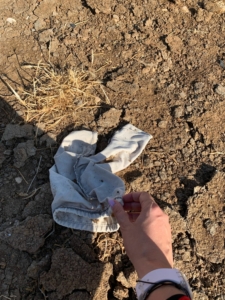
Sometimes you have to see for yourself to truly understand what it means to live in fear that never goes away. At the end of the day – or mission – you are left with the feeling that everyone who lives there exists in a state between survival and hope. Hope, that must not end.
But, dear readers, this is not just about Palestine. It is about humanity. It is about basic values that NO ONE should ignore. Everything that has happened in the last two years cannot be simply erased. Pretending that nothing happened and was happening. That nothing is happening. The genocide has not ended. It is just slower and quieter. Even worse, in fact.
And the greatest irony? It is that Palestinians would not need foreign aid at all if they were simply allowed to live. And it is that foreign aid – pressure – is actually what the state of Israel needs.
The European Union has the tools; we have seen how we know how to use them, or are using them, against Russia. The fact that we don’t have them here is not a lack of understanding. It is hypocrisy.
And that’s why I’m going to have serious discussions in my political group next week as we decide on the next steps. I won’t give up, because there should NEVER be any excuses for not taking responsibility. It’s time for us to take ours – morally, politically and humanly.

